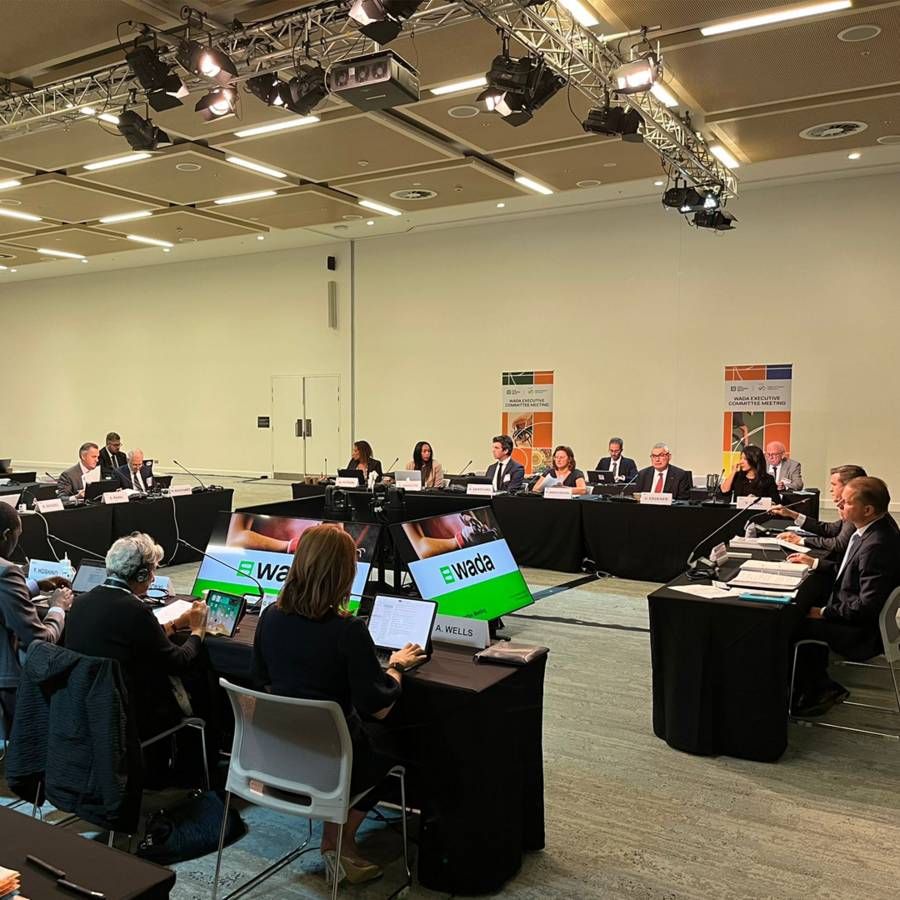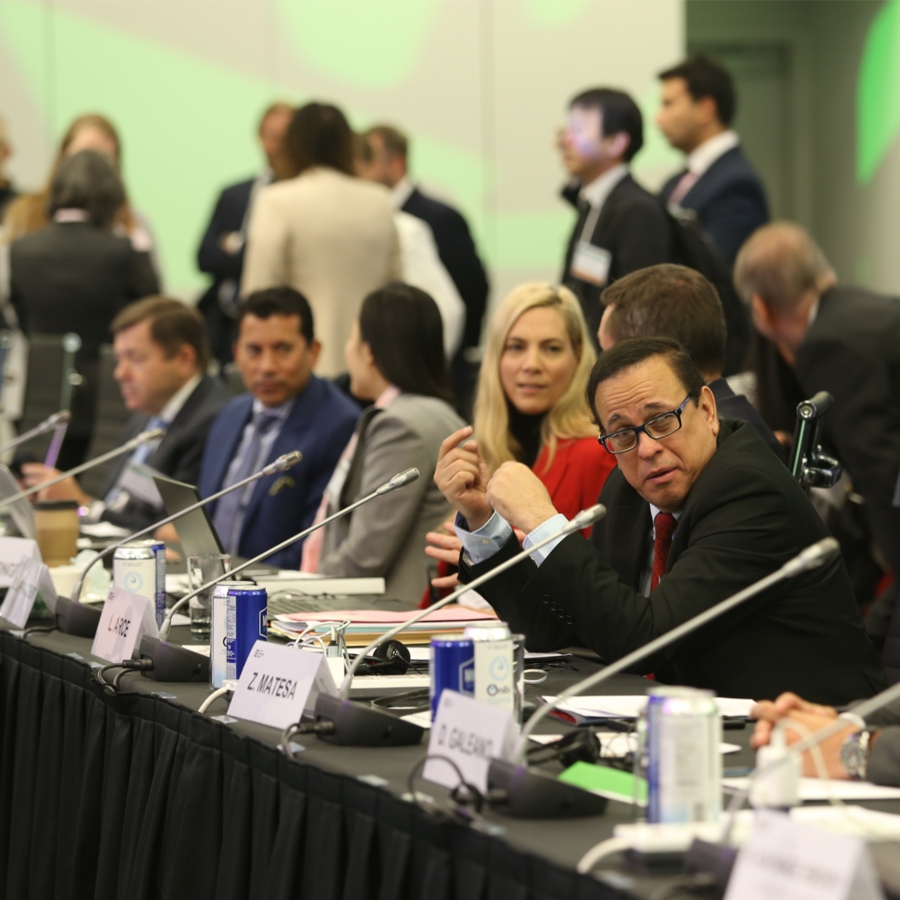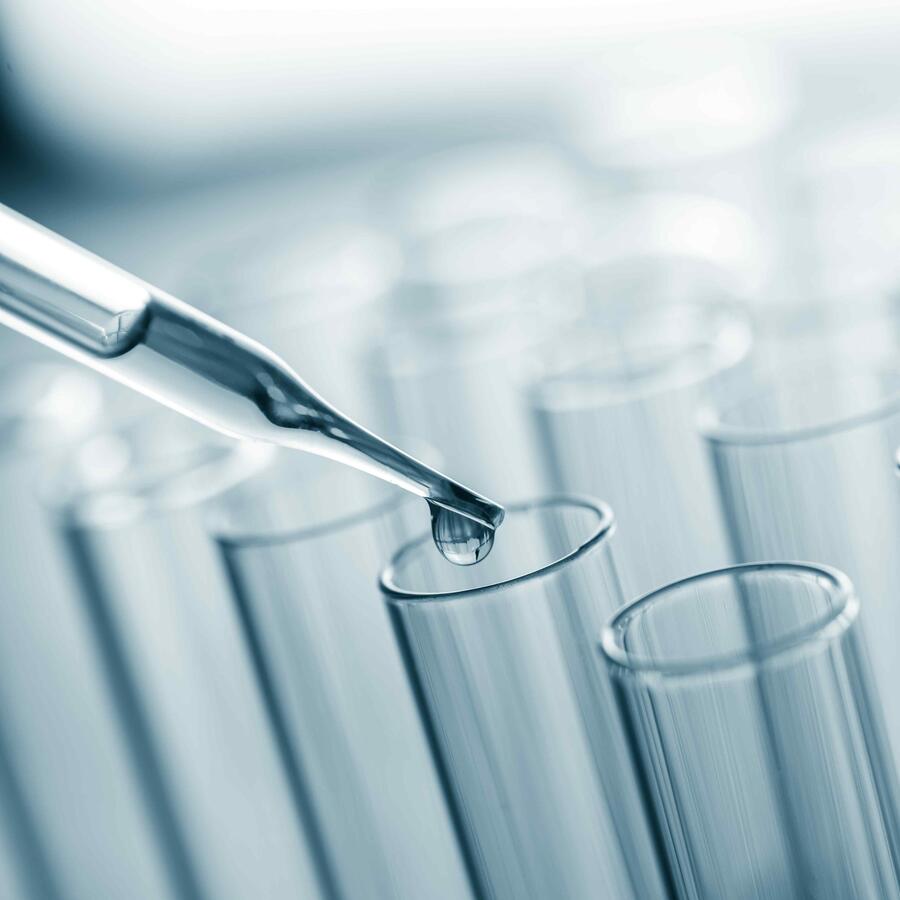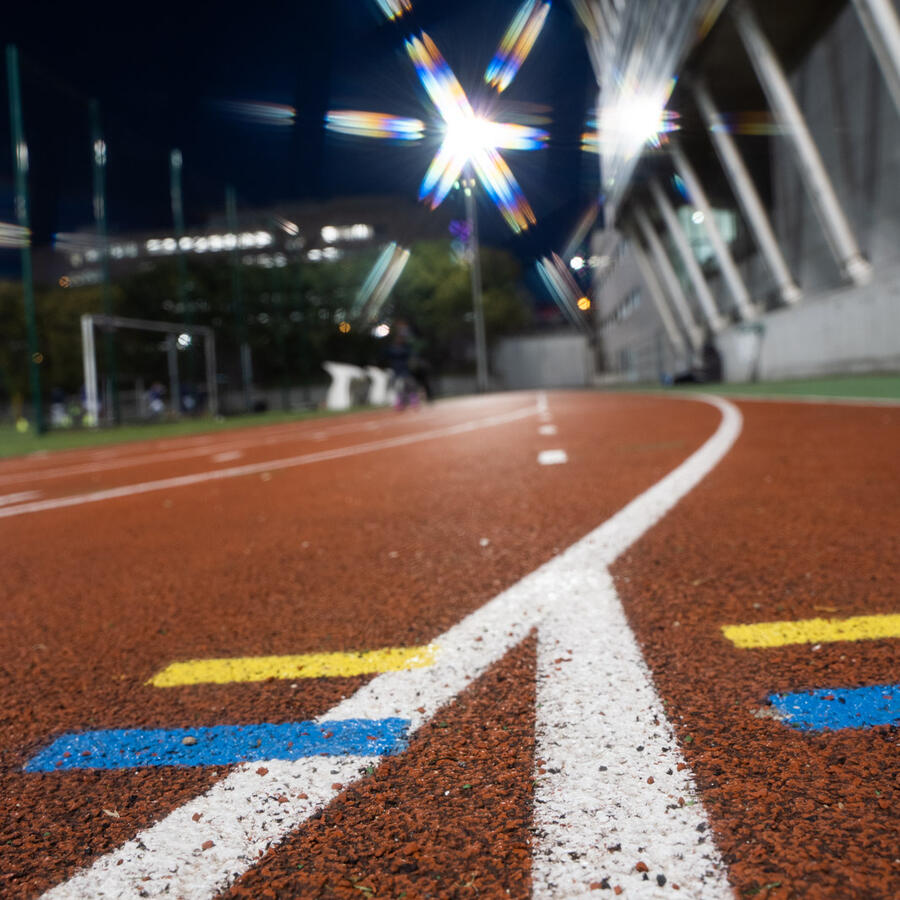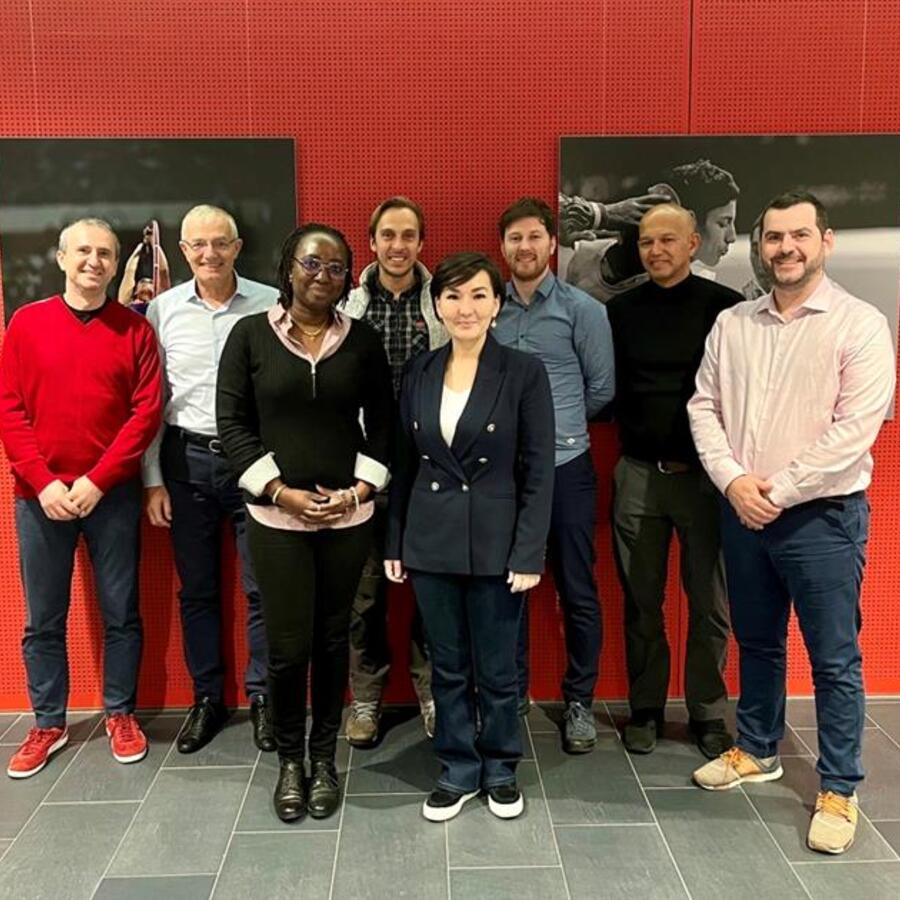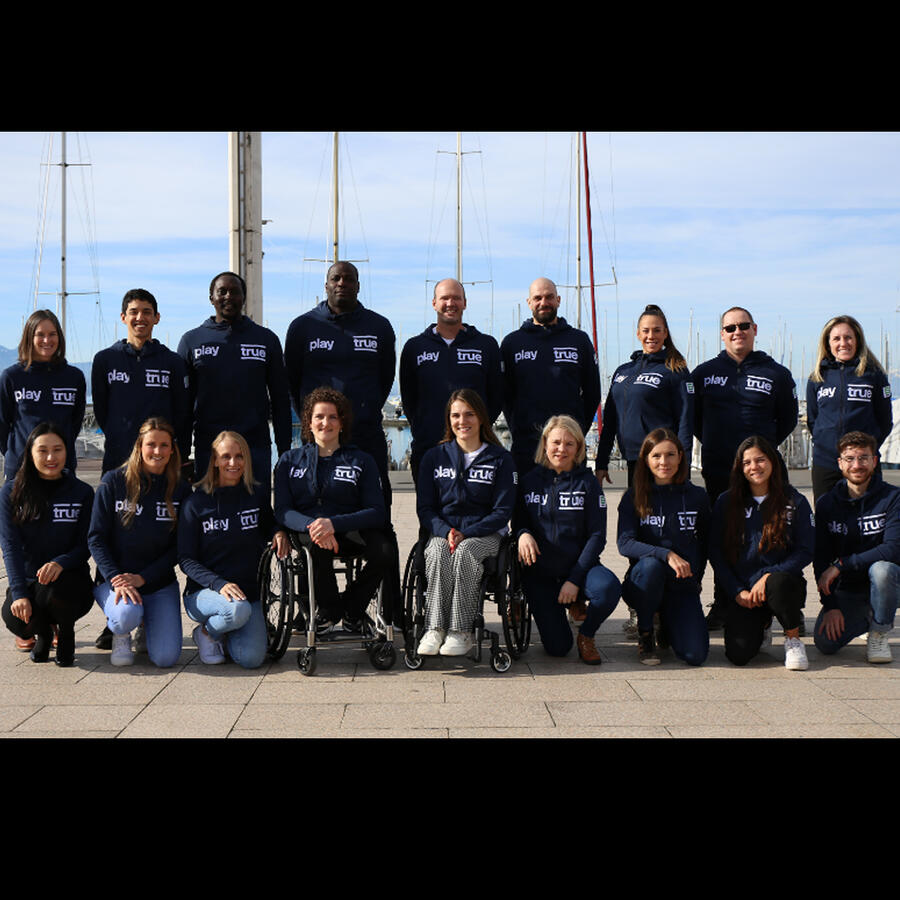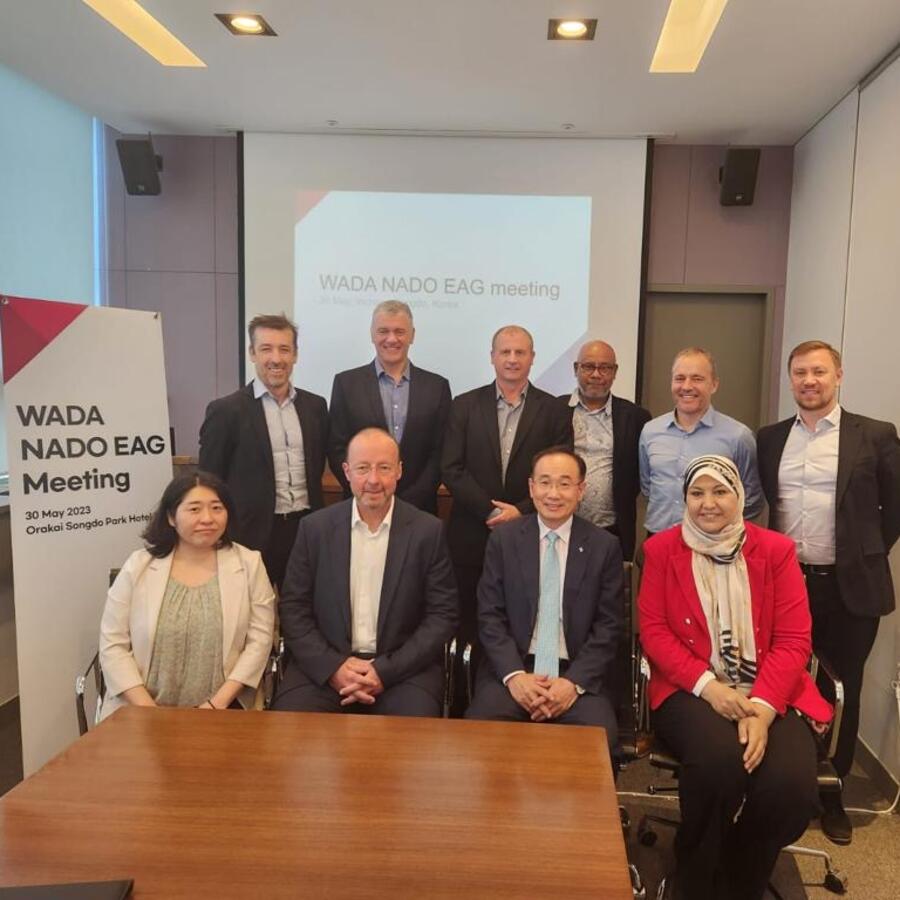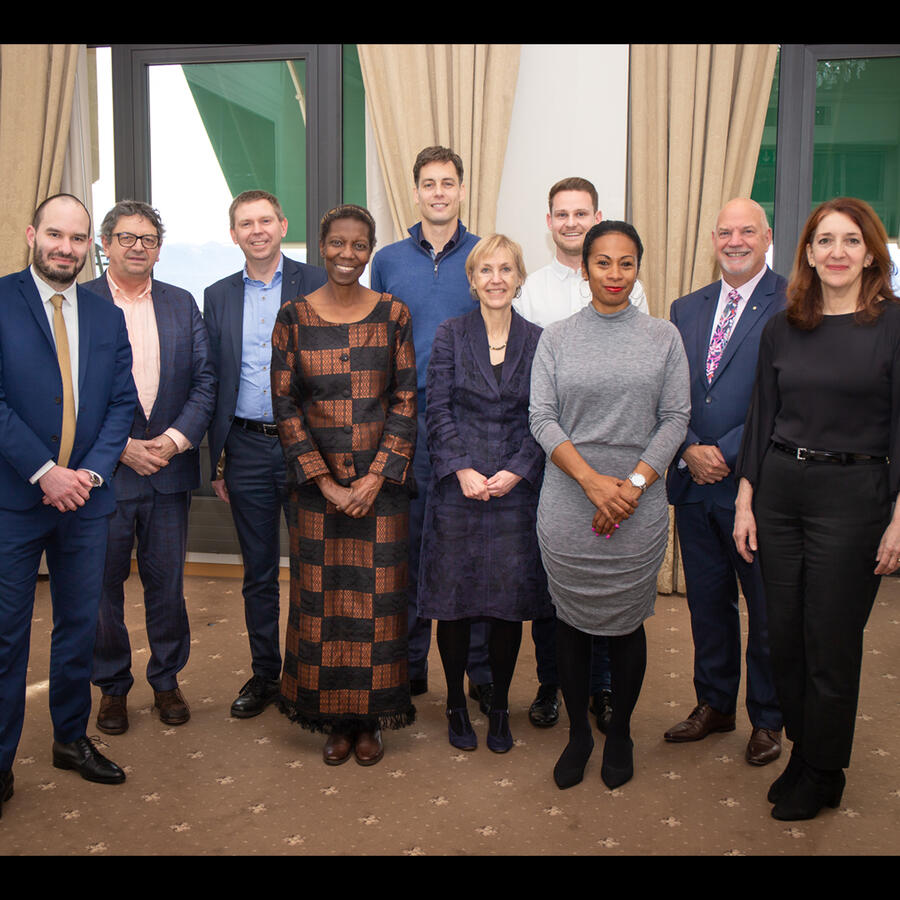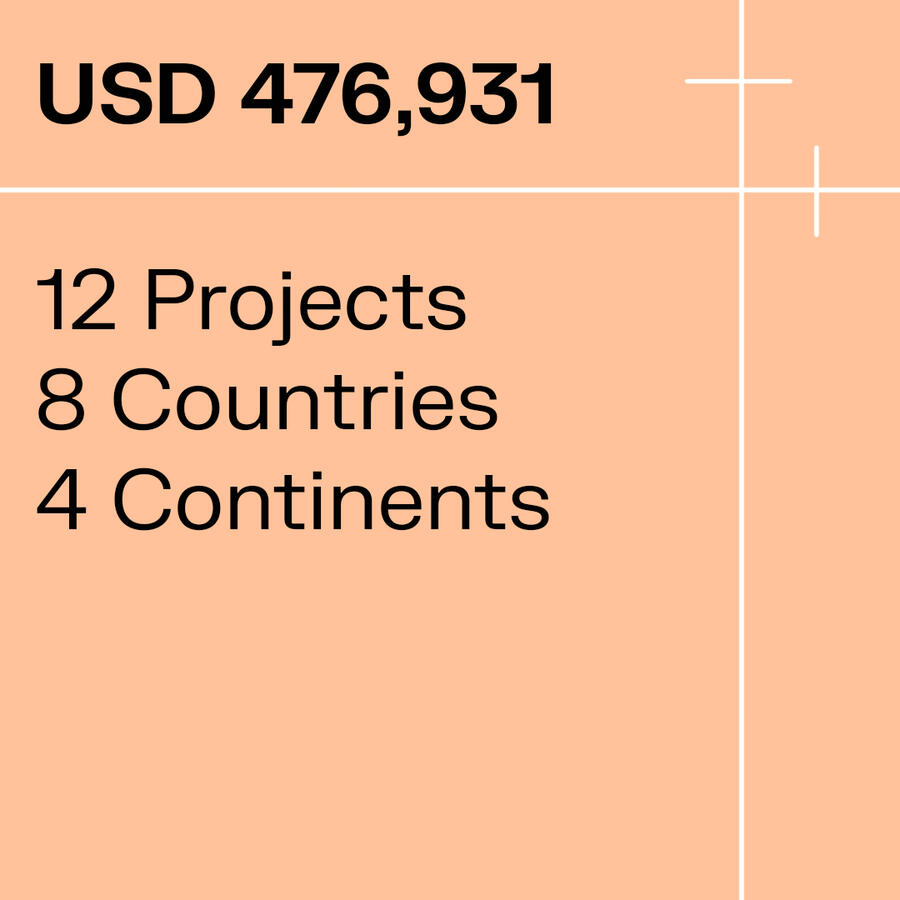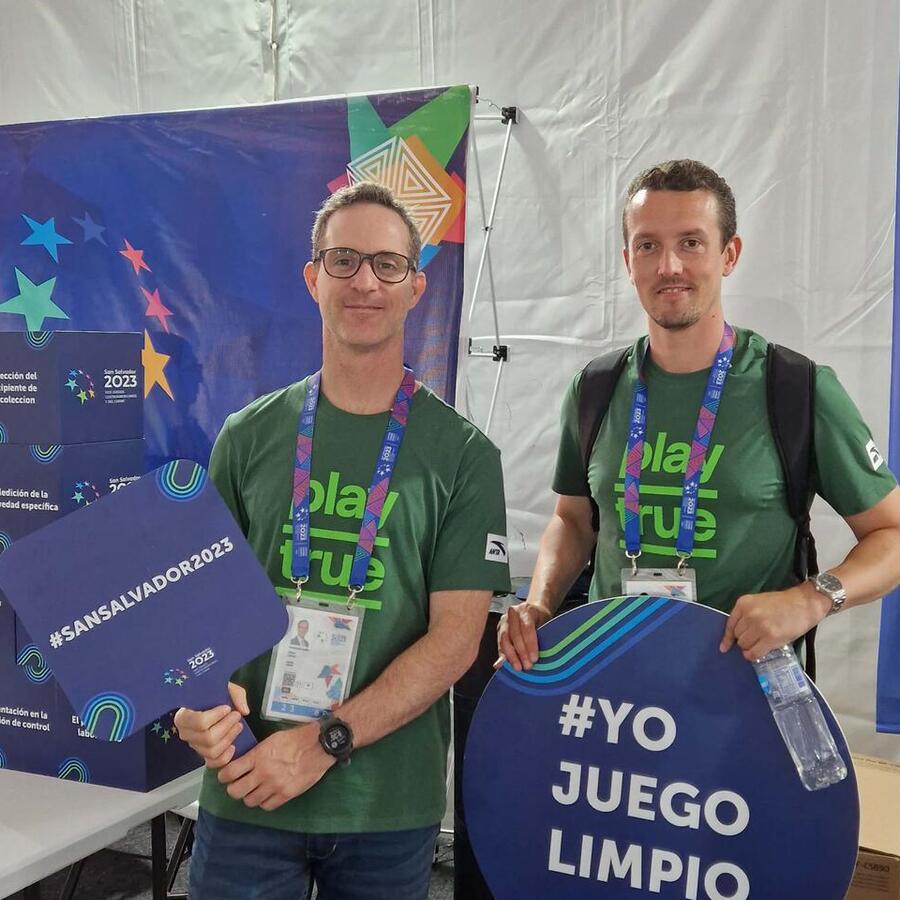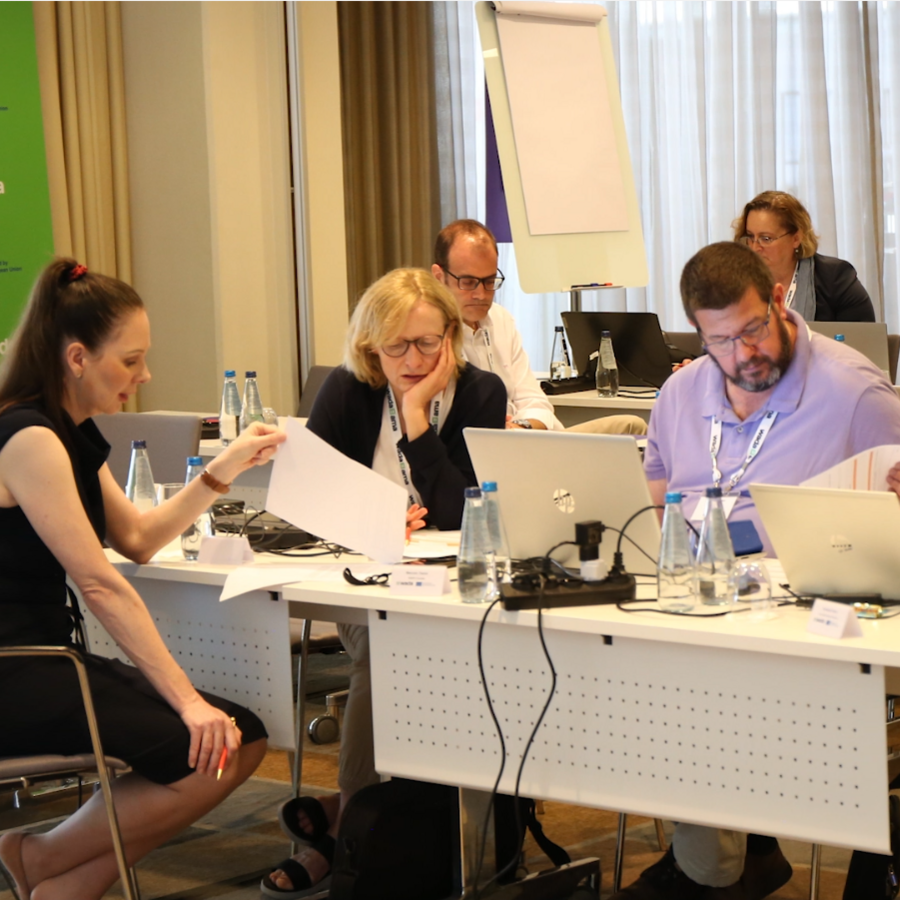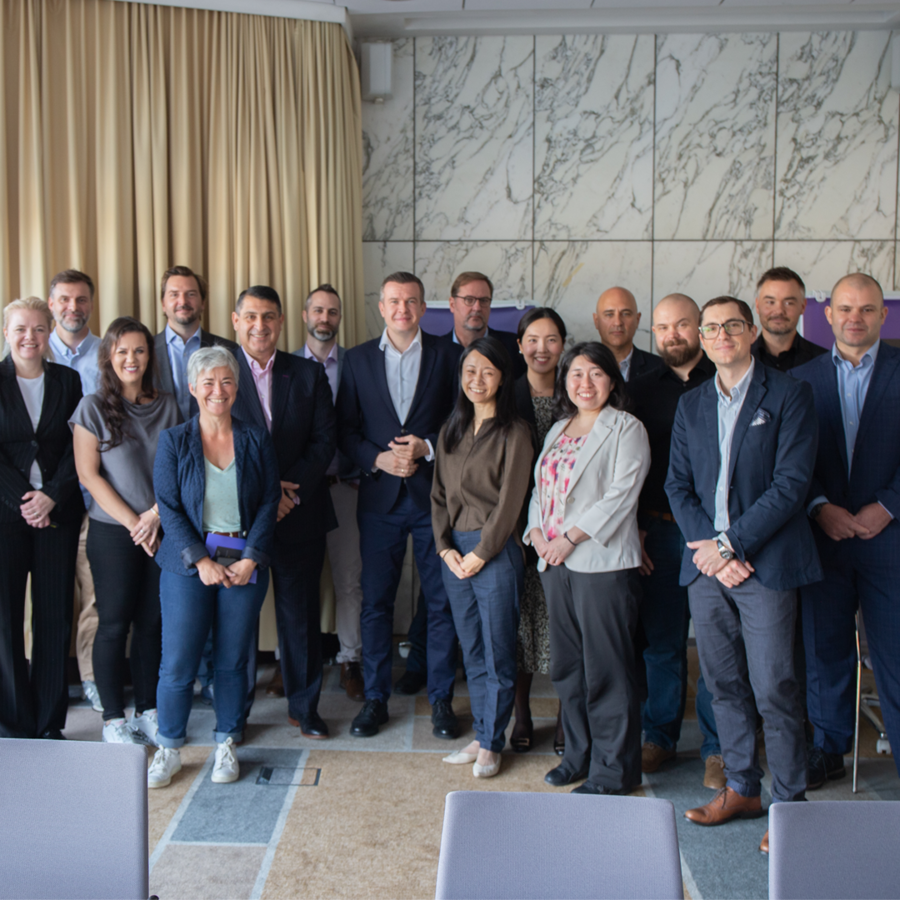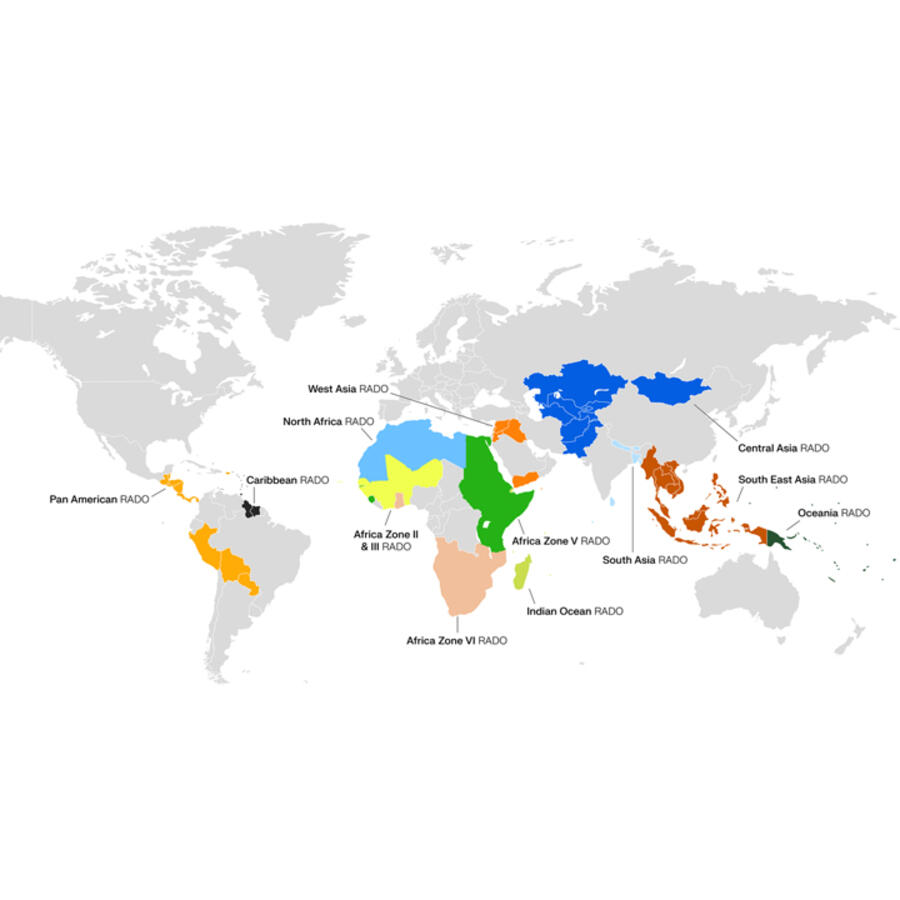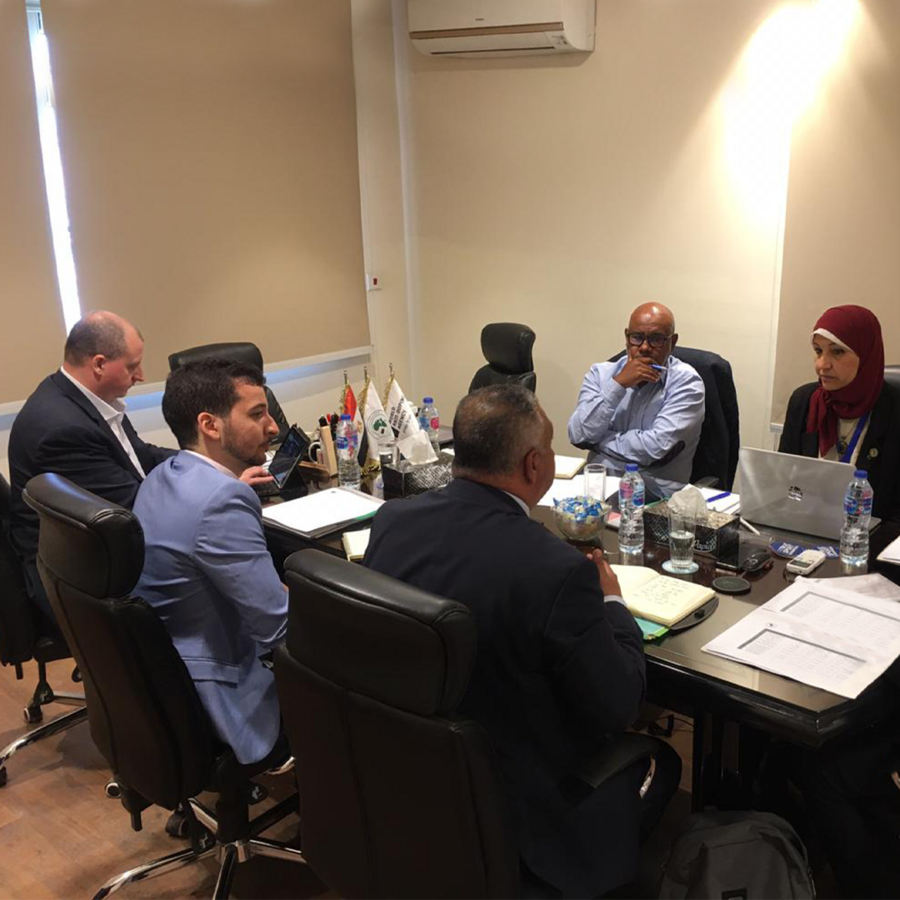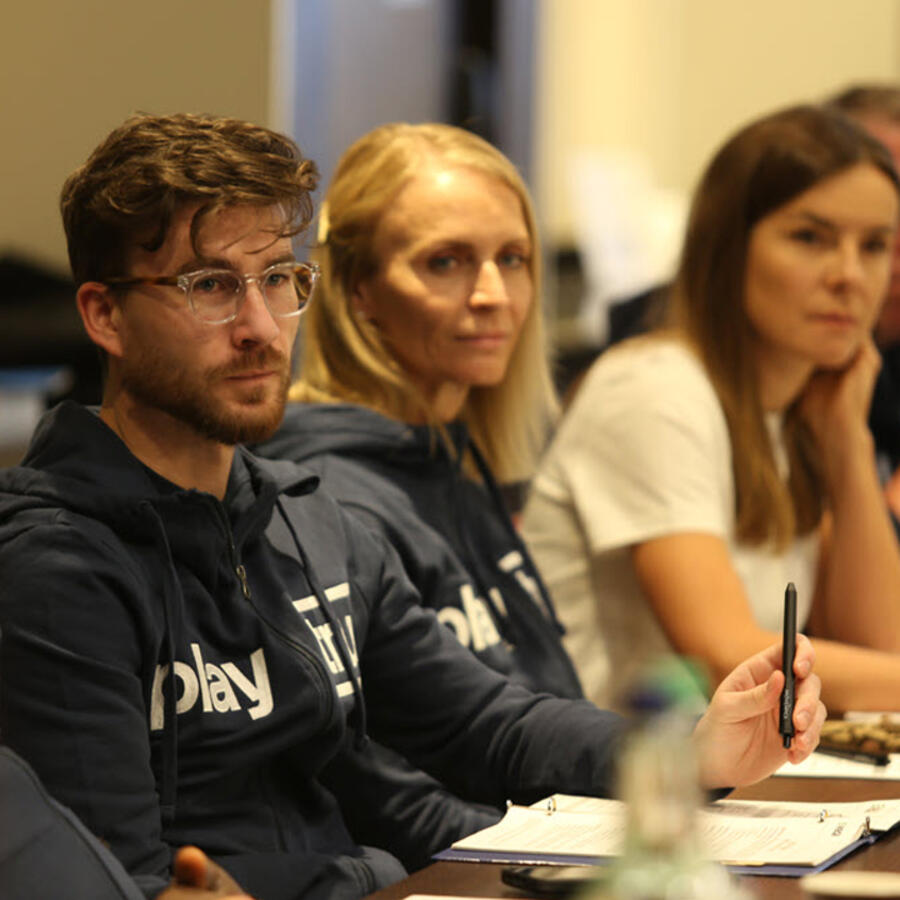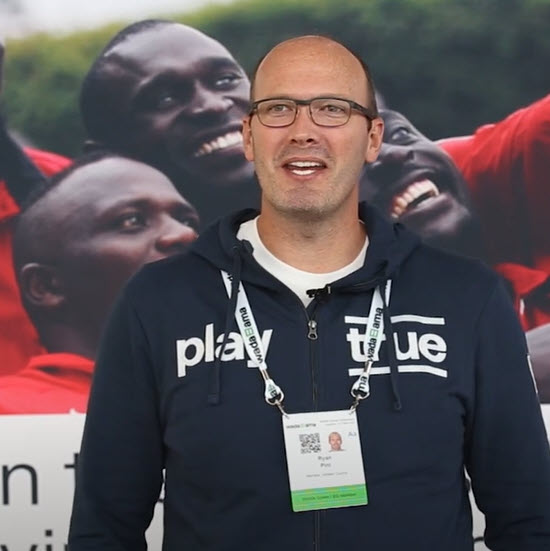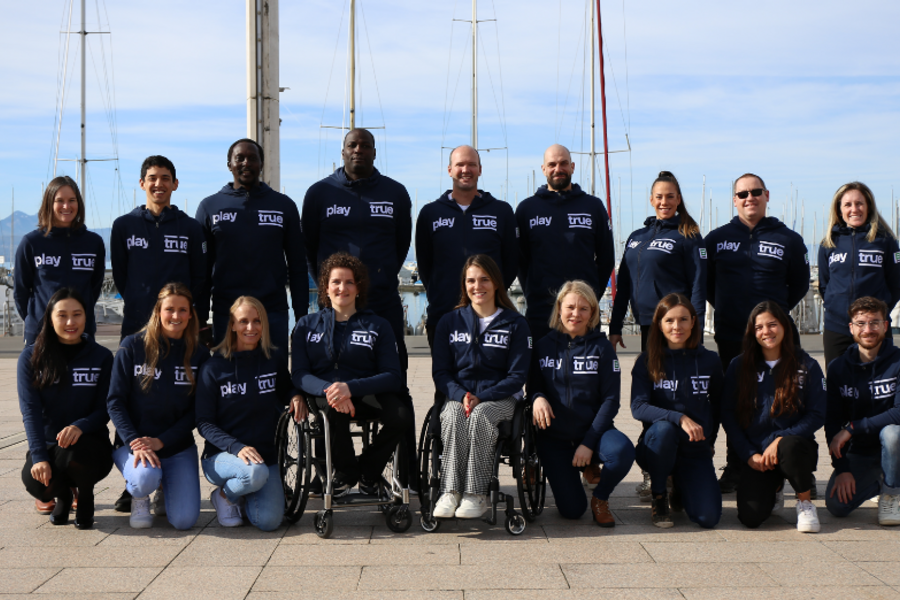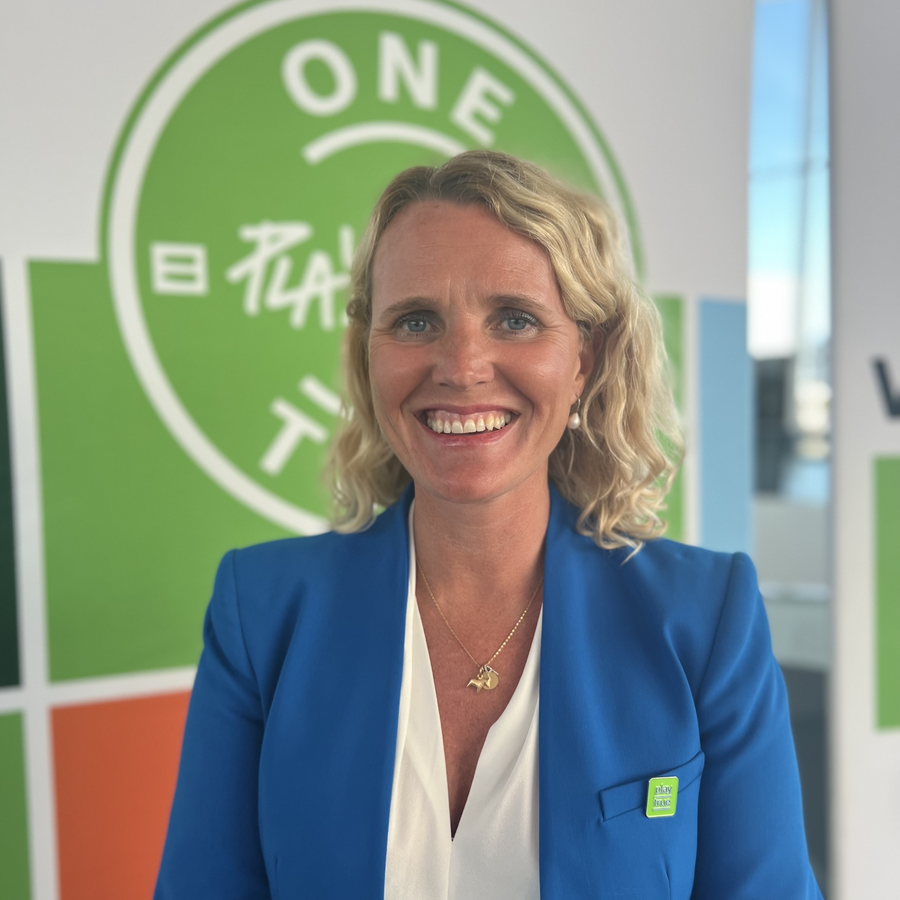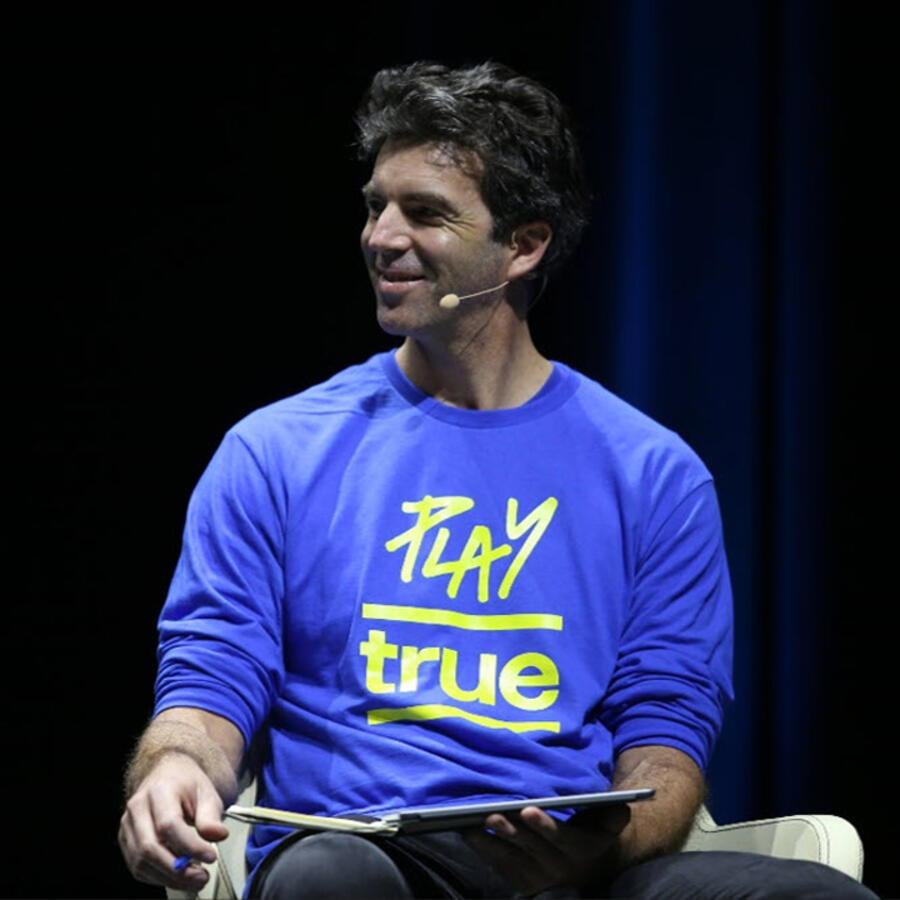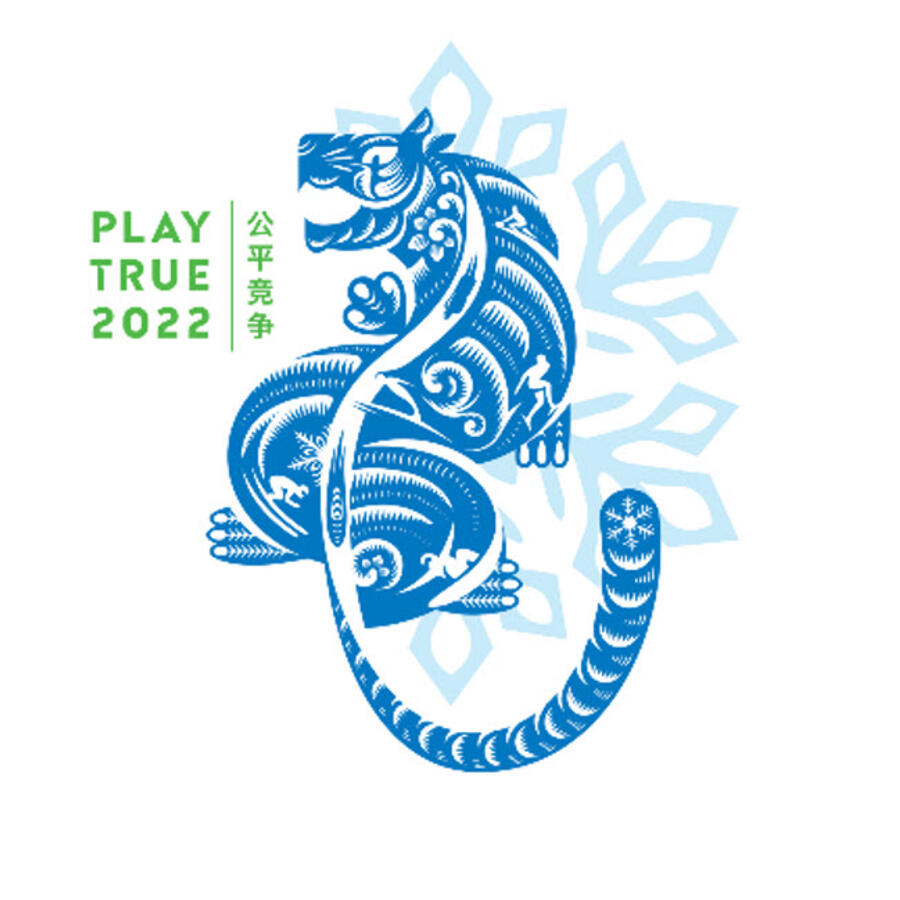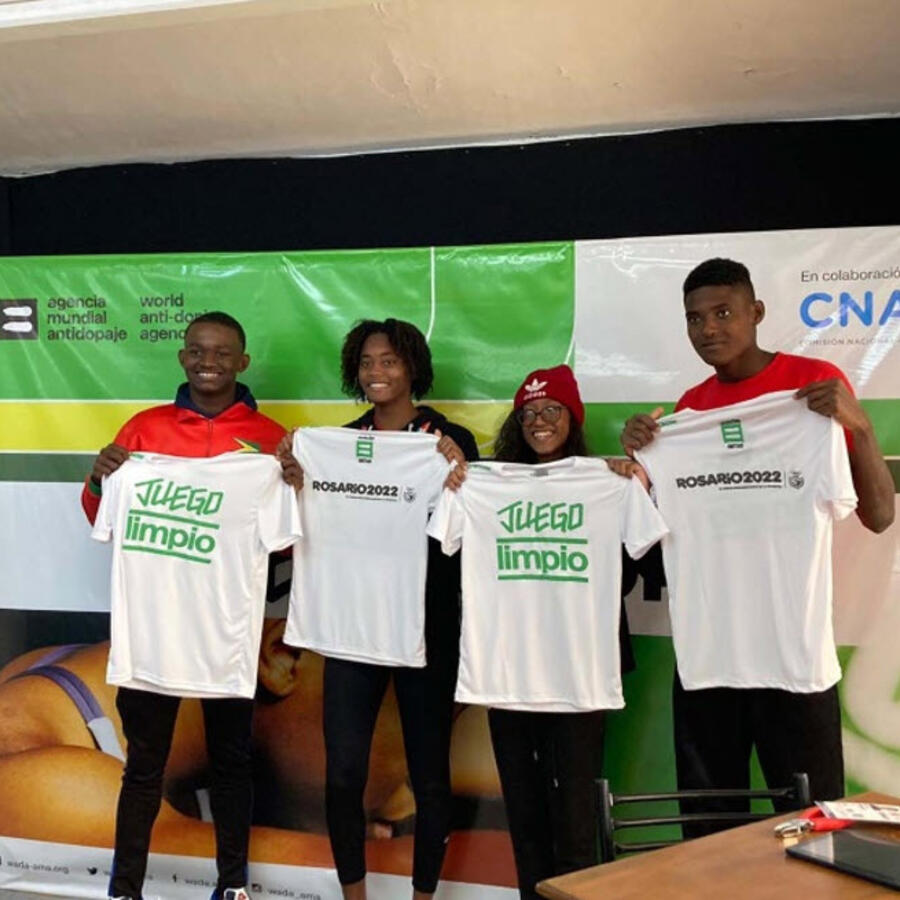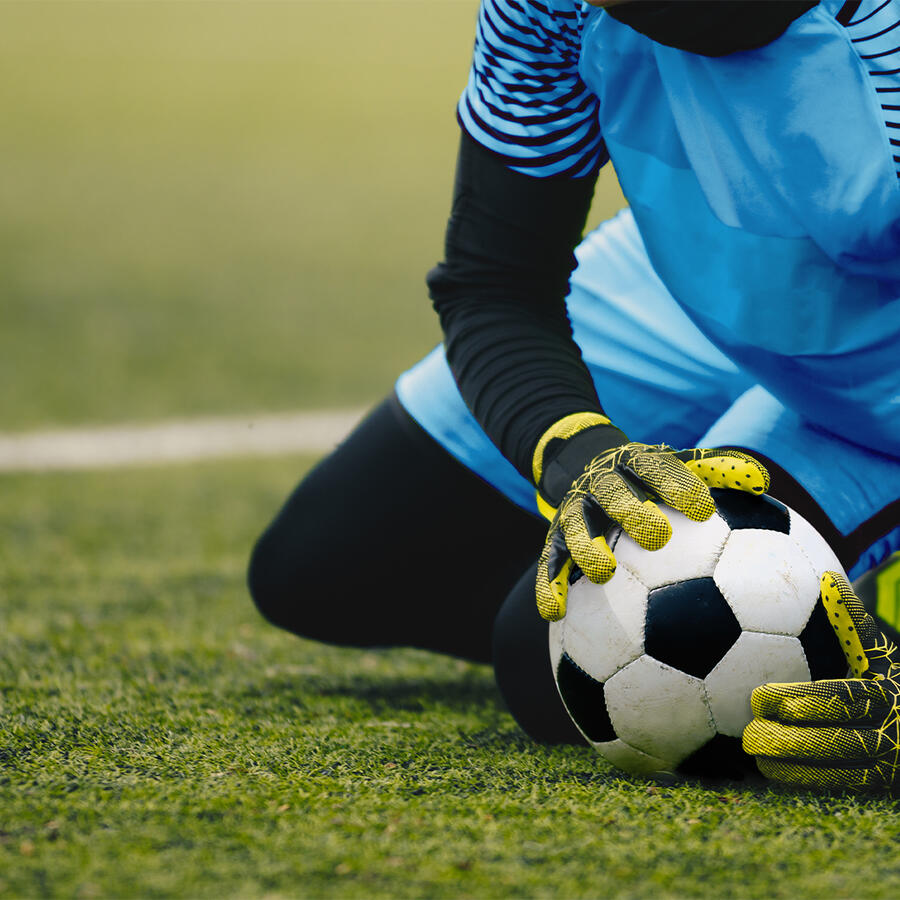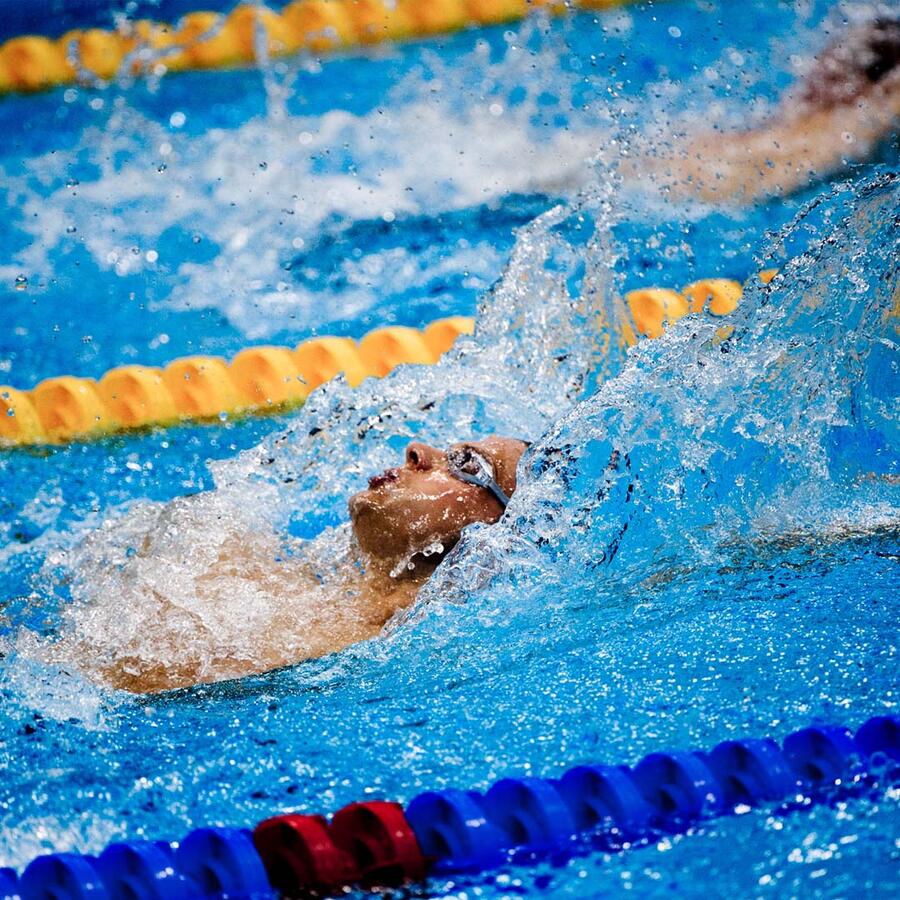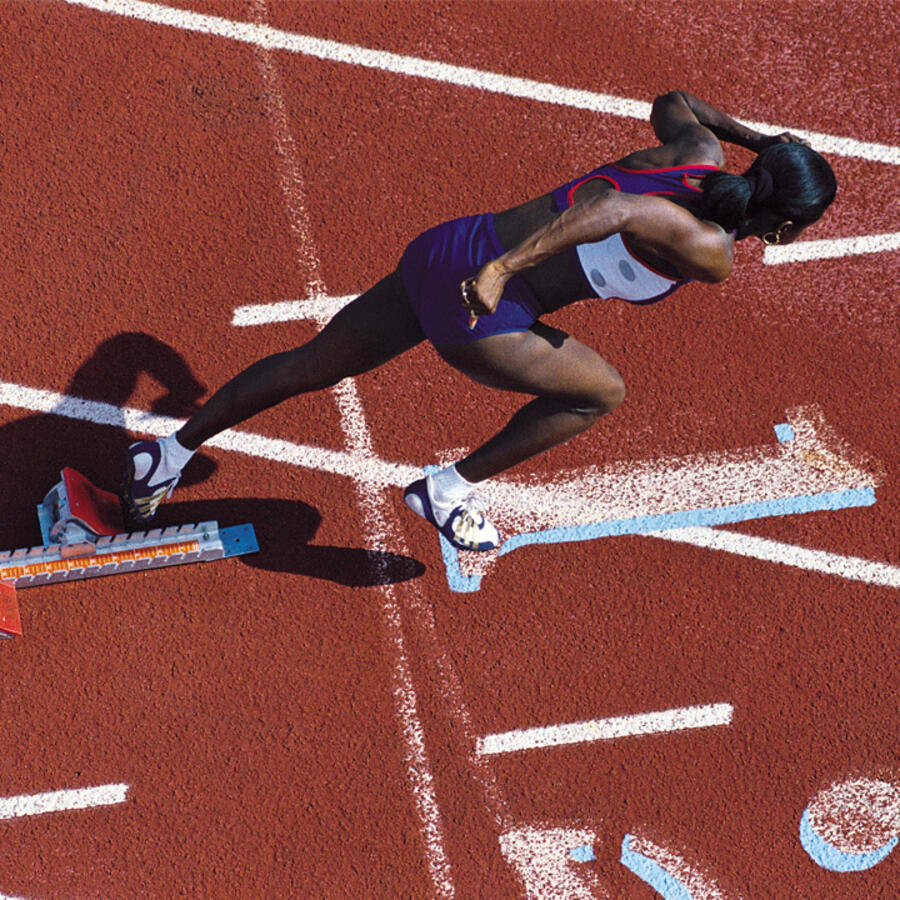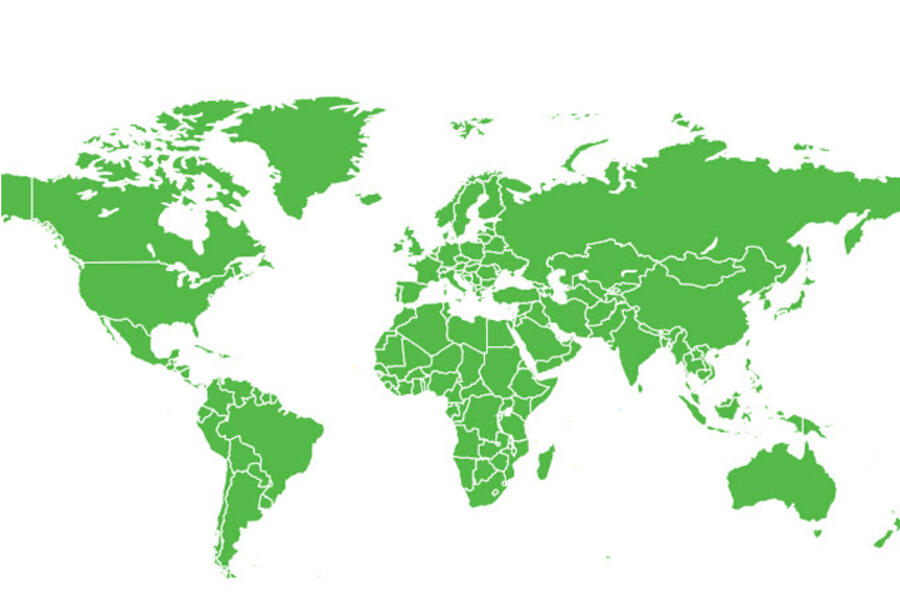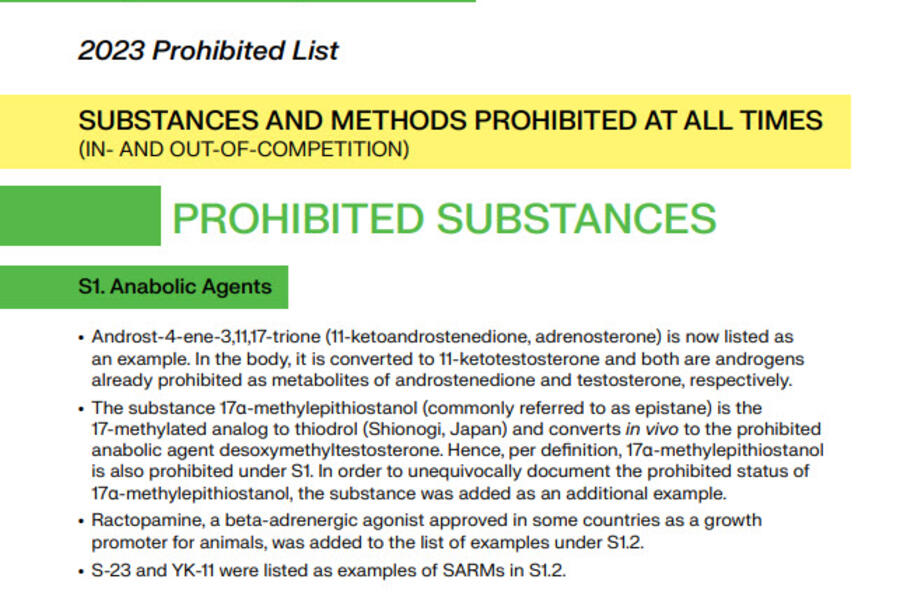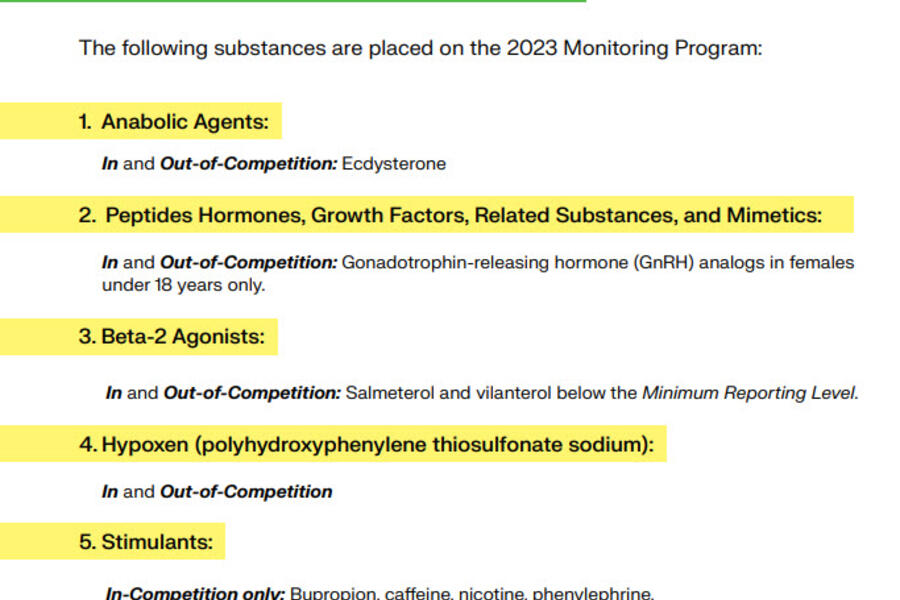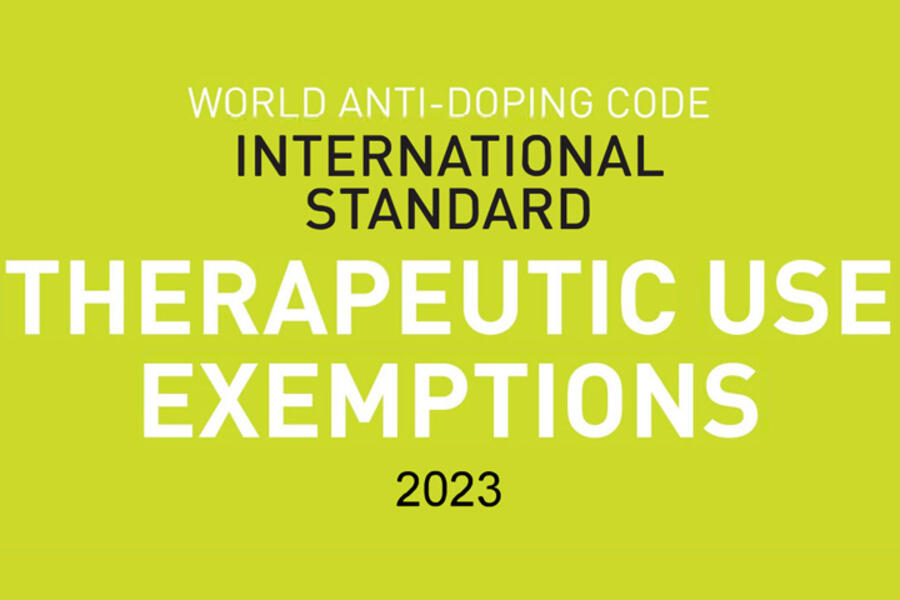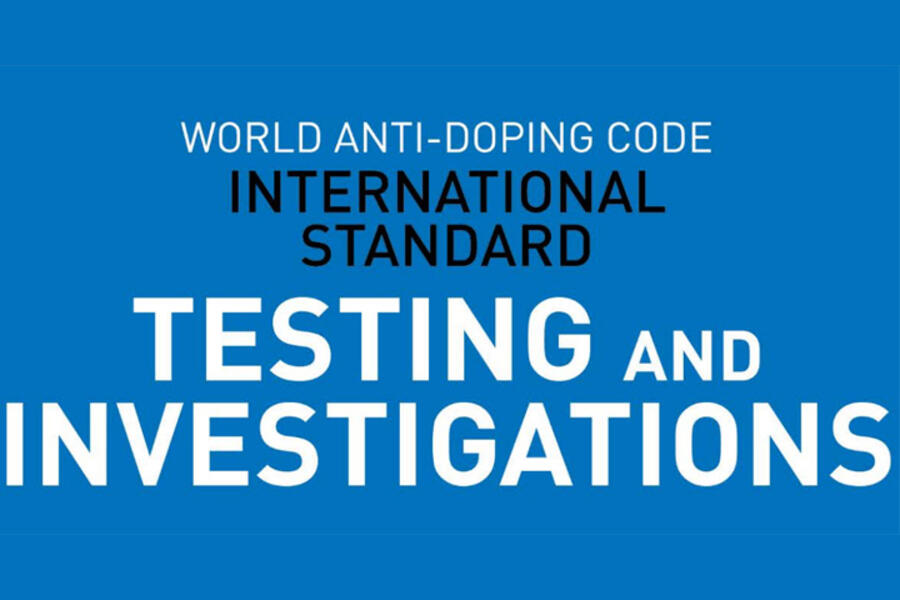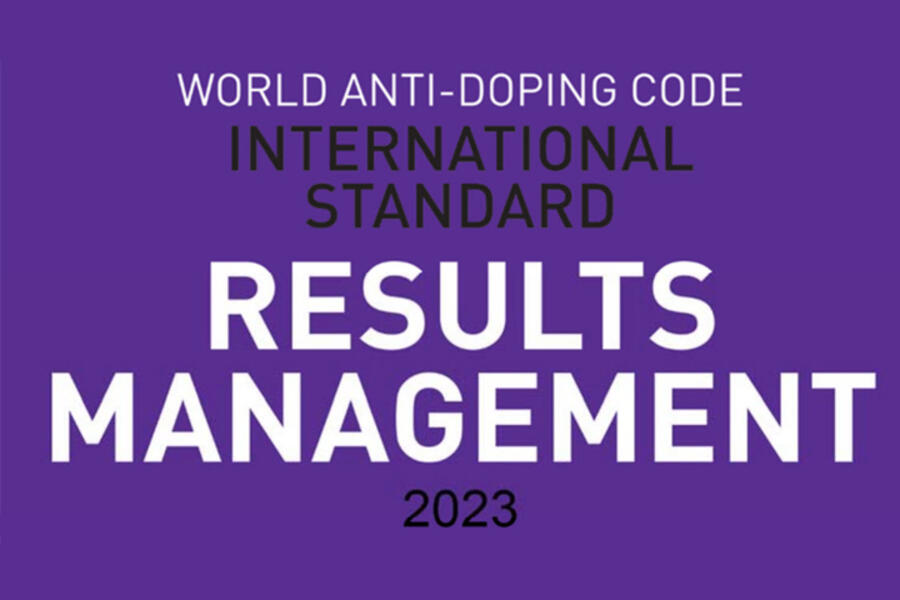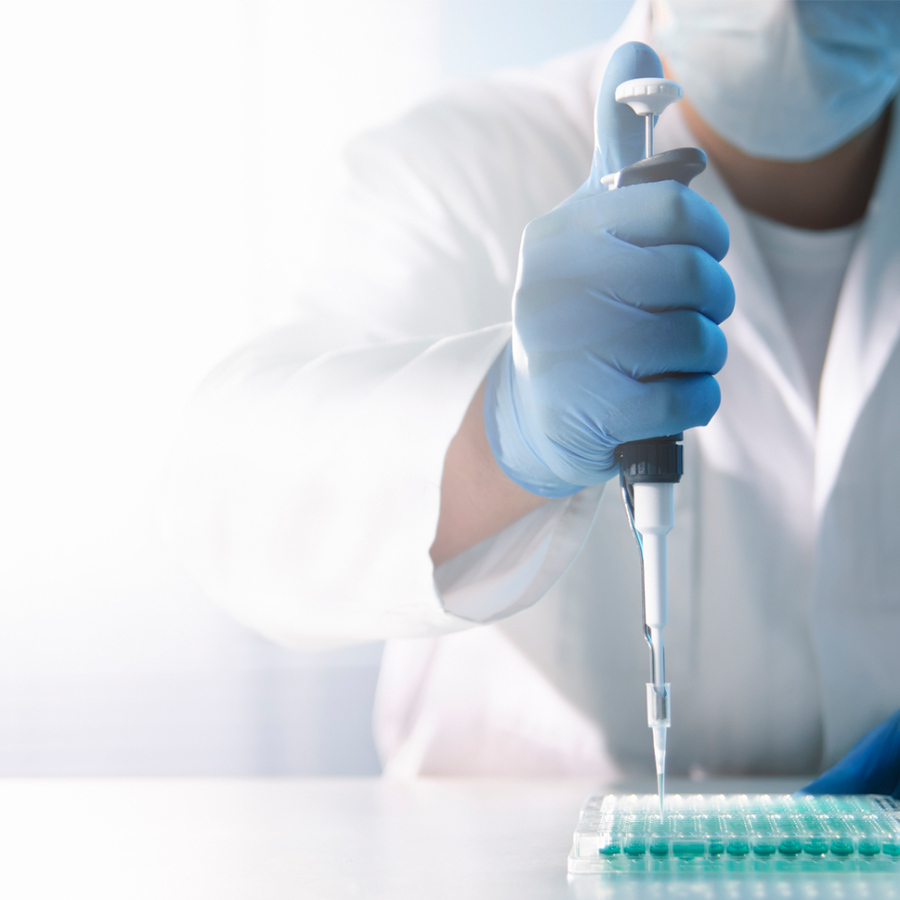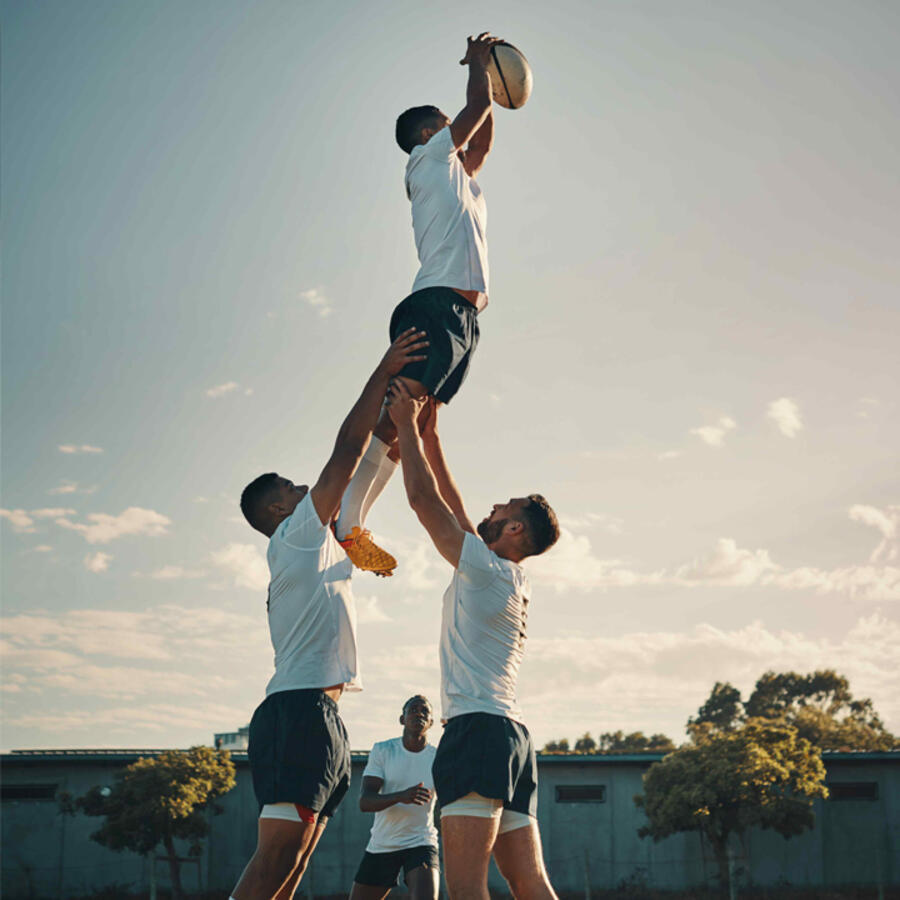Message from the President and Director General
Dear Colleagues,
Our Annual Report is an opportunity to thank you all – our partners in clean sport – for your support and dedication, and to highlight the ways in which we are delivering impact together.
For this year’s report, we have opted to structure it around our Strategic Priorities to showcase the ways in which our activities are informed by, and advancing, our 2020-2024 Strategic Plan. Also, with an eye towards making content more accessible and engaging, we are publishing it as an interactive online Report as opposed to a static PDF.
Over the course of 2022, WADA:
-
Further strengthened its ability to lead through governance reform and securing private funding;
-
Continued to grow impact by enhancing capacity building and knowledge sharing between Anti-Doping Organizations (ADOs) and empowering local program delivery;
-
Took huge strides towards the Agency’s commitment to be athlete centered;
-
Worked to engage everyone in anti-doping to increase unity, coherence, and support to fulfil its efforts to collaborate and unite; and
-
Delivered on its goal to be visible by actively engaging the global anti-doping community to raise awareness and shape a proactive narrative that demonstrates the positive impact of doping-free sport.
2022 was a year of tremendous progress with regards to WADA’s governance reform. These reforms, which have been fully implemented over the course of 2023, represent a significant swing towards more independence and enhanced representation for athletes and National Anti-Doping Organizations (NADOs) within WADA. The first in-person meeting of the new 20-member Athlete Council took place in March 2023, heralding a new era for athlete representation at the Agency. The Council is promoting the voices of athletes on anti-doping matters and also serves as the avenue for athletes – chosen by athletes – to assume positions on WADA’s Executive Committee, Foundation Board and Standing Committees.
We would like to thank all our stakeholders – including athletes, Governments, the Sport Movement and NADOs – who showed such commitment to the governance reform process that was first initiated in 2016.
2022 also saw a return to in-person engagement following the gradual lifting of COVID-19 restrictions. While testing and other activities had essentially returned to pre-pandemic levels by the beginning of 2021, it was in 2022 that we were once again able to carry out our Independent Observer and Athlete Engagement activities at various events around the world as well as to gather the greater anti-doping community.
In June, we were able to bring the anti-doping community together in a hybrid fashion for our Annual Symposium, in Lausanne, Switzerland. This 16th edition was particularly valuable for the information sharing, solidarity and partnership that are key to delivering on our global collaborative mission for doping-free sport.
Similarly, in September, we were able to stage our third Global Education Conference in Sydney, Australia, where we called on all ADOs to make education one of the key pillars of their strategic plans. It was agreed that educating athletes and their support personnel is the single best long-term solution that we have for protecting the values of sport, and that we must all embrace education for the good of athletes worldwide.
2022 also saw achievements in many other important areas, including:
-
Advancing anti-doping science and developing innovative approaches;
-
Strengthening World Anti-Doping Code compliance monitoring of Signatories;
-
Reinforcing intelligence and investigations capacity of the global anti-doping system; and
-
Securing an increase in WADA’s budget of 8%, 6% and 6% for 2023-2025.
Without question, the low point of 2022 came on 15 August with the loss of our much loved and admired Chief Operating Officer, Frédéric Donzé, who died suddenly, following a short illness, in Montreal, Canada, at the age of 50. Through his deep knowledge of anti-doping, passion for clean sport and genuine sense of humanity, Fred was the life and soul of WADA for 20 years. He was a well-known and respected figure throughout the global anti-doping community and was driven by his desire to deliver real results for athletes. His untimely passing left a massive sadness in our organization and was a devastating blow to all of us who had the great fortune to know him, work alongside him and call him our friend.
While we immediately acknowledged that Fred was one of a kind and that there would be no replacing him, we put a plan in place to ensure business continuity. We then took some time to consider how Fred’s responsibilities could best be distributed without too much change to the organizational model and structure that we put in place in July 2021 to support delivery of the Strategic Plan. The revised Organizational Structure took effect 1 January 2023 and has been functioning smoothly.
We are confident that this team will continue to work effectively within WADA and with all of you, and that together, we will succeed in further ‘Delivering Impact Together’ for the good of athletes and for the good of sport worldwide.
While WADA and the anti-doping community continue to evolve, we remain particularly committed to engaging and empowering athletes and building anti-doping capacity and community worldwide.
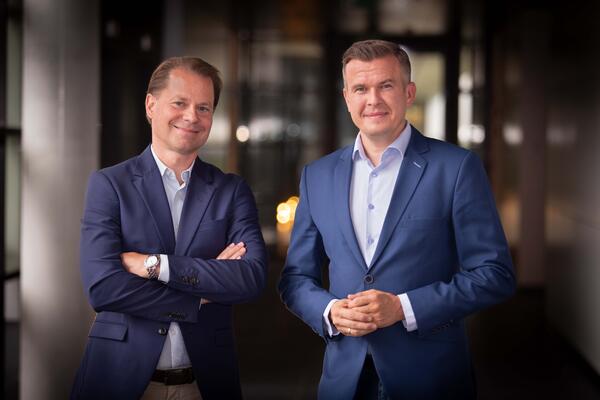
We thank you all for your commitment to clean sport.

Witold Bańka Olivier Niggli
President Director General
2022 Management Team
WADA’s Executive Committee delegates the management of the Agency to the Director General, Olivier Niggli, who leads the Management Team. The Team in 2022 can be found below.
Tribute to Frédéric Donzé
1972–2022

It was with profound sadness that WADA learned of the passing of its Chief Operating Officer (COO), Frédéric Donzé, who died suddenly on 15 August 2022, following a short illness, in Montreal, Canada, at the age of 50.
Fred joined WADA in 2002 in the role of Media Relations and Communications Manager. In 2011, he became Director of WADA’s Europe Office and International Federation Relations, in Lausanne, Switzerland, before being appointed Chief Operating Officer in 2016. Prior to joining WADA, Fred was a journalist in his native Switzerland, including sports editor of the Geneva-based newspaper, Le Temps.
Fred’s time at WADA was long and productive. He had an unrivaled work ethic, a leadership style and authenticity that made him an inspiration to his colleagues and a source of great confidence for athletes and everyone involved in anti-doping around the world. Above all, Fred will be remembered for his sense of humor, emotional intelligence and his integrity.
WADA President Witold Bańka said: “Just as it would have been difficult to detach Fred from the World Anti-Doping Agency, it is impossible now to think of a WADA without him, of a world without him. His influence was felt across every department of the Agency, his impact was felt by every team member. He was a reliable sounding board for ideas; a ready source of advice. His confident yet humble counsel was always carefully considered and freely given. With his experience and knowledge of the anti-doping landscape, he was able to see strategically several steps down the road – focused on innovation and action. As a leader, he could inspire people to do things that they never thought they could.”
WADA Director General, Olivier Niggli, said: “For 20 years, Fred was key to the life and soul of WADA. His tremendous work ethic, intelligence and authenticity made him an inspiration to his colleagues and a source of great confidence for athletes and everyone involved in anti-doping around the world. His passing is a devastating blow to all of us who had the great fortune to know him, work alongside him and call him our friend.” WADA extends its deepest sympathies and sincere condolences to the Donzé family and all who knew and loved him.
A revised organizational structure in 2023
While acknowledging that Frédéric Donzé was one of a kind and that there would be no replacing him, WADA immediately put a plan in place to ensure business continuity. We then took some time to consider how Fred’s responsibilities could best be distributed without too much change to the organizational model and structure that was put in place in July 2021 to support delivery of the 2020-2024 Strategic Plan. A revised Organizational Structure took effect on 1 January 2023 that can be found here.
The Year in Numbers
For a second year, WADA has conducted a series of perception surveys and internal analysis to measure Key Performance Indicators (KPIs) under the six strategic priorities of the 2020-2024 Strategic Plan. As the perception surveys are administered at the beginning of each year, the data from 2023, particularly when compared to that of 2022, provides insight on progress made over the course of 2022, making it ideal to reflect WADA’s KPI data for 2022 at a glance.
Annual Perception Survey – Overall Impressions
-
Leadership
Believe WADA is the leader in the field of Anti-Doping
-
Insight
Believe WADA acts as a thought leader
-
Integrity
Believe WADA has integrity
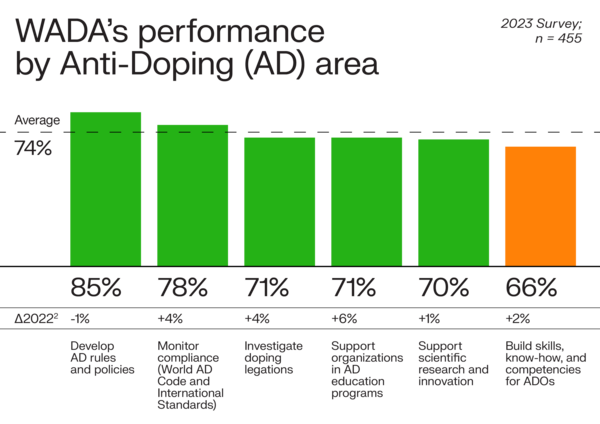
Compliance Monitoring: Comparison of Code Compliance Questionnaire (CCQ) Results (2016-2022)*
* Tier 1-2 ADOs
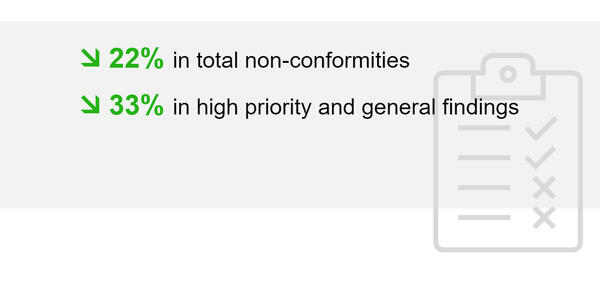
Anti-Doping Personnel Capability Impact
115 practitioners from 73 ADOs have been trained in line with the new Professional Standards for specific roles.
-
Capability Impact
85% of trained ADO practitioners are confident to apply what they have learnt.
Athlete Engagement and Satisfaction
-
Trust
87% of athletes trust that the anti-doping system enables clean competition and fair play (n=1,541).
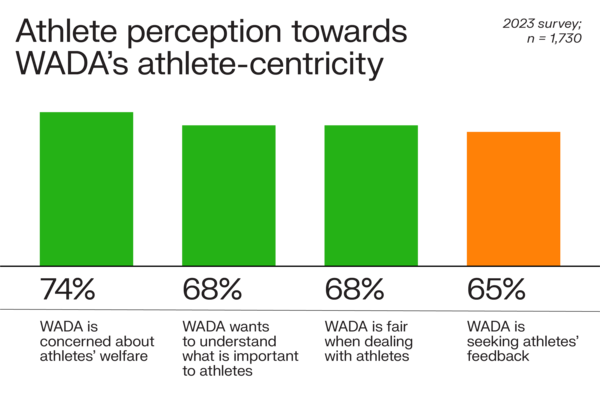
WADA’s new Athlete Council, which represents, supports, and promotes the voices of athletes on anti-doping matters, took effect 1 January 2023. The Council now serves as a distinct mechanism for WADA to seek feedback from athletes.
Athlete and Athlete Support Personnel (ASP) Education Impact
While the number of active learners on WADA's Anti-Doping Education and Learning Platform (ADEL) has increased by 3%, the level of engagement with the education material is especially positive, having increased:

Lead
WADA is leading the collaborative worldwide movement for doping-free sport by, among other areas, remaining at the forefront—of science and medicine, innovative testing and technology, governance, and education. To guide the world toward a place where all athletes can participate in a doping-free sporting environment, WADA has also begun securing private funding to complement the annual budgetary contributions received from the Sport Movement and Governments of the world.
Cutting edge Science and Medicine
WADA continues to strengthen the development of anti-doping science and medicine to ensure effective implementation of the World Anti-Doping Code (Code) and its related International Standards.
Grow Impact
WADA’s ‘Grow Impact’ priority centers around expanding the reach and impact of anti-doping programs by enhancing capacity building and knowledge sharing between Anti-Doping Organizations (ADOs) and empowering local program delivery. The Agency empowers teams across Education, Program Development, Intelligence and Investigations, and National Anti-Doping Organization/Regional Anti-Doping Organization (NADO/RADO) Relations, to work towards this priority.
Education
A key pillar of modern anti-doping, education is a defining feature of WADA’s pathway to growing impact. From the development of workforce standards and training programs for ADO practitioners all the way to anti-doping education resources for young people, WADA is ensuring that education is leveraged to grow impact on all anti-doping fronts.
Professional Standards
In 2022, WADA published the first set of Professional Standards aimed at providing a benchmark of necessary knowledge, skills, and competencies across the global anti-doping workforce.
The Professional Standards are part of WADA’s Global Learning and Development Framework (GLDF) and were created in collaboration with stakeholders. They also served as the basis for the development of role-specific training programs. The initial set of Standards—featured below—targeted anti-doping practitioners working in six different areas, and the associated training programs were completed by 130 practitioners in 2022.
WADA has since published Standards tailored to the Therapeutic Use Exemptions workforce and delivered related training programs.
Due to the GLDF’s initial relevance and success, the initiative was able to enter its next phase, the GLDF4CleanSport project, which is an EU-funded collaboration between WADA, the European Observatoire for Sports and Employment, and seven ADOs (Anti-Doping Denmark, Doping Authority Netherlands, the French Anti-Doping Agency, National Anti-Doping Agency Austria, Polish Anti-Doping Agency, World Athletics, and World Rugby). The partnership was successful in obtaining an EU grant of EUR 400,000 through the Erasmus+ Program to continue developing the GLDF.
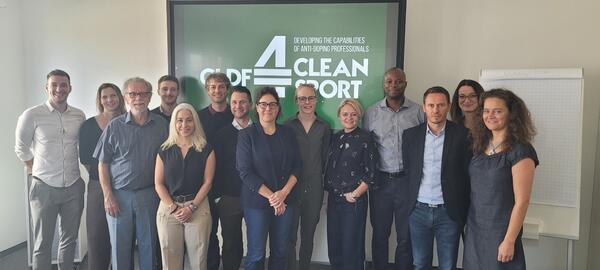
Education resources for young people
In line with its view that education should happen from playground to podium, WADA launched Sport Values Online, an interactive module for children involved in sport.
Available on WADA’s Anti-Doping Education and Learning Platform (ADEL), the module is designed to complement the Sport Values in Every Classroom toolkit, a free, cross-curricular resource for teachers of students ages 8 to 12 that aims to help instill some of the core values synonymous with sport: respect, equity and inclusion.
The module was developed by the “Education Partnership,” which is comprised of the following six international organizations: WADA; the United Nations Educational, Scientific and Cultural Organization (UNESCO); the Agitos Foundation; the International Council of Sport Science and Physical Education (ICSSPE); the International Fair Play Committee (IFPC); and, the Olympic Foundation for Cultural Heritage (OFCH).
Be Athlete Centered
Athletes have always played a central role at WADA and now, their influence on anti-doping policy and governance is growing significantly. Driving this momentum is the ‘Be Athlete Centered,’ priority of the Agency’s Strategic Plan, which involves:
- engaging and empowering athletes to contribute to the development of anti-doping policies;
- building an easier anti-doping journey for athletes; and
- maximizing program impact so athletes can build healthy and sustainable careers in sport.
Ultimately, we want to ensure we are listening to the views of athletes worldwide and addressing the matters that are of most interest to them.
In 2022, WADA made significant progress in enhancing athlete representation within WADA’s governance, ensuring athletes have a dedicated resource to help them navigate the anti-doping system, examining how anti-doping policy may impact and protect athletes’ human rights, ensuring athletes understand data privacy and how to protect their information, and focusing on meaningful engagement at events.
Data Privacy for Athletes
In August 2022, WADA released a new education course for athletes about Privacy and Information Security Awareness on the Agency’s Anti-Doping Education and Learning Platform (ADEL). The course was developed with input from WADA Athlete Council member and former Olympic sport shooter, Gaby Ahrens (Namibia), as well as other stakeholders with experience providing information security training to athletes and sports organizations.
Ms. Ahrens said: “The ‘Privacy and Information Security Awareness for Athletes’ education course is another important step towards equipping athletes with the knowledge they need to understand how their personal information is used for anti-doping purposes and their rights with regards to privacy and data protection.”
Collaborate and Unite
WADA seeks to engage and collaborate with everyone involved in anti-doping, in particular with the Sport Movement and Public Authorities, to increase unity, coherence, and support in everyone’s efforts. Stakeholder Engagement and Partnerships is instrumental in this arena.
Stakeholder Engagement and Partnerships
To approach engagement with stakeholders in a planned, coherent and targeted manner, the Agency established a new Impact Area in July 2020 called Stakeholder Engagement and Partnerships (SEP), with the ultimate goal of encouraging cooperation and trust within the global anti-doping community.
Led by WADA’s Senior Director of SEP, René Bouchard, and supported by WADA’s Regional Offices, the Impact Area organizes bilateral meetings and multilateral forums between Government officials across the globe and WADA Leadership, including President Witold Bańka, Vice-President Yang Yang and Director General Olivier Niggli.
In April 2022, WADA called on Governments of Americas to strengthen anti-doping
Bouchard says of SEP: “It’s about collaboration with the stakeholders and leveraging the impact we can have together on the anti-doping system. It is also about keeping our ear to the ground to know the concerns and expectations from our stakeholders to allow us to react more quickly than we would if we were absent from that environment.”
The capacity for and impact of WADA’s engagement is also amplified through collaboration with a range of Intergovernmental Institutions.
Led by Sébastien Gillot, Director, European Office and Sport Movement Relations, WADA also collaborates with the various bodies that regulate and promote sports around the world, including the International Olympic Committee (IOC), the International Paralympic Committee, International Federations, National Olympic Committees, National Paralympic Committees, and Major Event Organizations.
Much like its interactions with Public Authorities, WADA Leadership holds frequent bilateral meetings and multilateral forums with sports leaders around the world.
WADA President updates IOC Session in advance of Beijing Olympic Games
Read the Stakeholder Engagement and Partnerships Spotlight to learn more about the Impact Area.
Additionally, WADA forms partnerships in all anti-doping areas, and in 2022, some partnerships of particular note were established in Intelligence and Investigations, Education, and Science and Medicine. The Agency also played important roles in anti-doping Seminars and Conferences in the EU and several Asian nations.
WADA’s law enforcement partners in the European Union conducted an investigation, known as Operation Shield, that successfully seized more than EUR 40 million-worth of counterfeit medicines and doping substances, dismantled 59 criminal groups, and arrested or reported to the judicial authorities 349 suspects across Europe.
Coordinated by the European Union Agency for Law Enforcement through the European Anti-Fraud Office, the investigation was led by law enforcement in France, Greece, Italy, and Spain, and involved police and customs authorities from 28 countries. WADA was included in the initial stages of the investigation, which took place between April and October 2022.
WADA Director, Intelligence and Investigations (I&I), Gunter Younger, said: “WADA I&I is pleased to have been involved in Operation Shield and we stand ready to play this sort of collaborative role again in any similar operations. Outside of this, we continue to forge partnerships with law enforcement agencies in Europe and throughout the world.”
In September, WADA held its fourth Global Education Conference in Sydney, Australia.
Graciously hosted by Sport Integrity Australia, the GEC welcomed over 300 participants from around the globe under the theme of celebrating a new era in education through innovation, collaboration, and implementation.
The event brought together anti-doping practitioners and researchers to share and discuss emerging trends, contribute to education program development, and examine how Anti-Doping Organizations can enhance their education programs while keeping athletes and their support personnel at the center of their learning strategies.
Addressing the Conference, Mr. Bańka stressed that only through collaboration and information-sharing exercises, such as the GEC, can real progress be made in this area.
Mr. Bańka said: “We all have a role to play. I know the incredible level of passion and commitment for anti-doping among athletes, sports, governments, National Anti-Doping Organizations, laboratories, service providers, researchers, members of the media and the public. The collective will is there… We can engage and collaborate with each other to increase support, unity and understanding. We can raise awareness and shape a clear message that clean sport is the only sport we will accept and celebrate.”
Developments: In January 2023, WADA published the nine outcomes that were identified under the three core themes of the GEC—innovation, collaboration, and implementation—and also added Conference presentations to its Anti-Doping Education and Learning platform (ADEL).
In October, WADA held its third Athlete Biological Passport (ABP) Symposium and also partnered to deliver the ninth annual International Conference on Novel Psychoactive Substances.
ABP Symposium
Graciously hosted by India’s National Anti-Doping Agency and National Dope Testing Laboratory, WADA's ABP Symposium brought together over 200 anti-doping stakeholders that are involved in all aspects of ABP programs–testing, administration, expert reviews, and results management–to promote harmonization of practices and an exchange of knowledge and lessons learned from ABP cases.
Present at this 3rd ABP Symposium were representatives from National and Regional Anti-Doping Organizations; International Federations; Athlete Passport Management Units; WADA-accredited laboratories; and ABP experts who review passports.
WADA Associate Director of the ABP, Dr. Reid Aikin, said: “WADA was thrilled to convene so many stakeholders from around the world to discuss the Athlete Biological Passport program. The success of the ABP relies heavily on the coordination and collaboration between different stakeholder groups. A key theme of this symposium was enhancing communication between ABP partners–recognizing its importance, where it can be improved, and ultimately working towards developing solutions to enhance the exchange of information between all involved in the ABP.”
To learn more about the ABP, visit the ABP section of WADA’s website or read the ABP Spotlight.
International Conference on Novel Psychoactive Substances
The ninth International Conference on Novel Psychoactive Substances, jointly organized by WADA, the United Nations Office on Drugs and Crime, the European Monitoring Centre for Drugs and Drug Addiction, the International Society for the Study of Emerging Drugs, and the University of Hertfordshire, convened in Panama City in late October.
WADA’s Senior Director of Science and Medicine, Prof. Olivier Rabin, was among those who welcomed participants to the conference.
Prof. Rabin said: “WADA was thrilled with the outcomes of this year’s International Conference on Novel Psychoactive Substances, which featured interesting presentations that stimulated important discussions between a range of stakeholders. New psychoactive drugs are emerging at an alarming rate, and the bridges formed this week between different organizations, medical professionals, and governments are important not only in the context of clean sport, but in battling what has become a societal issue in many regions of the world. It is important that we continue to collaborate across disciplines, share information, and work harmoniously to combat this multifaceted issue.”
Other Conferences, Seminars, and Symposia
Over the course of the year, WADA also played important roles in other anti-doping Conferences, Seminars and Symposia in the EU and several Asian nations. These events all provided opportunities for anti-doping communities in different regions to gather, collaborate, forge new connections and strengthen existing ones, and renew commitments to clean sport.
Be Visible
For WADA, to be visible is to raise awareness and shape a proactive narrative that will demonstrate the positive impact of doping-free sport and WADA’s role therein. We look to actively engage the global anti-doping community in whatever ways will reach them best. Through our rebranding and the launch of our new website, we improved our capacity to do this. Our digital content, our social media platforms, and our events—in-person and online—make it easier and more engaging to learn about and be a part of the anti-doping movement.
WADA’s online engagement also grew significantly from 2022 to 2023, pointing to the success of the website relaunch.
-
Visits
27.8% increase in website visits.
-
Reach
12% increase in users reflects greater reach.
-
Views
15.5% decrease in page views suggests users are able to find information with fewer clicks.
As it relates to social media, from 2022 to 2023, WADA channels (Instagram, Facebook, LinkedIn, and Twitter) experienced growth in audience and engagement.
-
Growth
8.4% audience growth
-
Engagement rate
24.2% increase in engagement
Play True for Peace
Our 2022 Play True Day Campaign, Play True Day for Peace, took a different form from previous years. We invited the global anti-doping community to stand with us in solidarity for peace on 8 April 2022, and the engagement was inspiring.
WADA President Witold Bańka said:
“In light of the war in Ukraine, WADA considered postponing Play True Day this year. However, after consulting with a number of our stakeholders worldwide, we decided to go ahead with Play True Day for Peace. The feeling is that values such as fairness, integrity, and respect for rules—which are embodied within the Play True message—contribute to harmony in sport and society.”
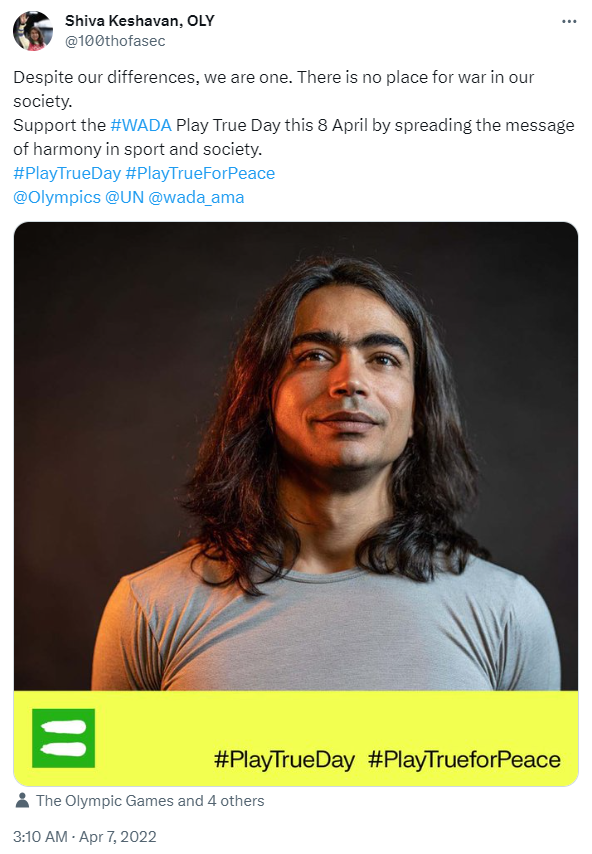
|
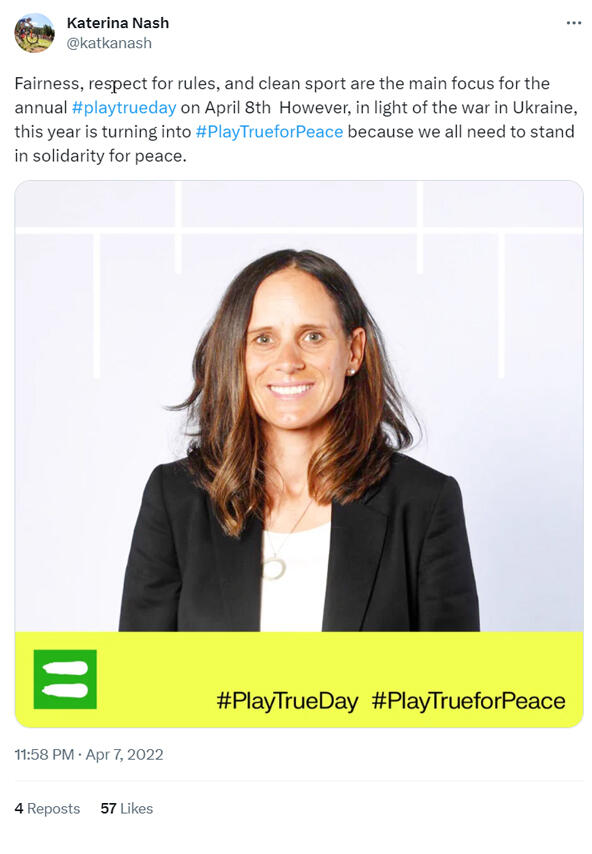
|
-

47 000 000 More than 47M impressions worldwide.
-

4 000 Nearly 4,000 posts.
-

83 000 Nearly 83,000 interactions.
World Anti-Doping Program
The backbone of our work is the World Anti-Doping Program, which is comprised of the World Anti-Doping Code (Code), International Standards (Standards), and Guidelines, which together ensure harmonization and best practice. These are all living documents and thus are updated as needed in consultation with stakeholders. In turn, as the global regulatory body for anti-doping in sport, WADA is responsible for monitoring effective implementation of the Code and Standards by Code Signatories and also for ensuring global harmonization of sanctions and equal treatment for athletes.
List of Prohibited Substances and Methods
In September 2022, following our usual, extensive stakeholder consultation process with some of the most qualified experts in the fields of science and medicine from around the world, WADA’s Executive Committee (ExCo) approved the 2023 List of Prohibited Substances and Methods (List). The List was published on 29 September, along with the 2023 Summary of Major Modifications and Explanatory Notes and the 2023 Monitoring Program. As is customary, the new List came into effect 1 January 2023.
Other Standards and Guidelines
In addition to the 2023 Prohibited List, WADA published three other revised Standards along with five accompanying updated Guidelines.
Standards
Guidelines
Technical Documents
Under the International Standard for Laboratories (ISL), WADA issues Technical Documents (TDs) to provide direction on specific technical or procedural issues to WADA-accredited laboratories, WADA-approved laboratories for the Athlete Biological Passport (ABP), and other stakeholders. TDs provide direction on specific technical or procedural issues and are mandatory under the ISL.
In 2022, WADA published updated versions of the following four TDs:
Compliance
One of WADA’s primary roles as the global regulatory body for anti-doping in sport is to monitor effective implementation of the Code and Standards by Code Signatories. WADA does this through its Compliance Monitoring Program, comprised of the Code Compliance Questionnaire (CCQ), Program Area Monitoring (previously the Continuous Monitoring Program), and conducting audits.
In June 2023, WADA published its 2022 Compliance Annual Report. Some of the key findings of the Report are as follows:
-
The 2022 CCQ data identified significant progress when compared to the 2017 CCQ.
-
WADA continued to support Signatories in amending anti-doping rules and/or legislation even though there was no requirement to do so given that all Signatory rules and/or legislation were compliant by early 2022.
-
Although compliance procedures reduced in comparison to 2021, they remained high, suggesting that compliance maturity is still being established in the system.
-
Testing continued to generate the most non-conformities in 2022, though this is in part due to the availability of verifiable data through ADAMS.
-
Education generated the second highest number of non-conformities following the first global assessment of the implementation of the International Standard for Education.
-
Resources within WADA and Signatories were an ongoing challenge in 2022 with 24% of Tier 1 and Tier 2 Signatories completing the CCQ having insufficient resources in place to meet the requirements of the 2021 Code.
WADA Director of Compliance, Rules and Standards, Kevin Haynes, said:
“In 2022, we saw some encouraging improvements in Signatories’ anti-doping programs, some of which we believe is due to Signatories becoming more familiar with WADA’s Compliance Monitoring Program and the Code Implementation Support Program.
Within WADA, we have created a Compliance Risk Management framework and increased our data analytics capabilities, enabling us to anticipate and assess risk in a more proactive manner and move towards more real-time monitoring of Signatories’ anti-doping programs.
In noting the improvements identified in the Report, we would like to acknowledge that Signatories have made continued efforts in maintaining Code compliant programs. I would also like to commend the independent Compliance Review Committee for its insight and expertise when it comes to reporting on WADA’s compliance activities.”
To read more about key findings and how WADA is addressing them, please read the 2022 Code Compliance Annual Report.
Independent Observer Programs
WADA’s Independent Observer (IO) program, which complements the Compliance Monitoring Program of Major Event Organizations, helps enhance athlete and public confidence at major sporting events by monitoring and reporting on all phases of the doping control and results management processes.
In 2022, WADA’s IO program was present at:
Results Management
WADA reviews all decisions rendered by Signatories worldwide, and files appeals where appropriate to ensure global harmonization of the sanctions and an equal treatment for athletes, regardless of where they come from or what sport they compete in.
In May 2023, WADA published its 2020 Anti-Doping Rule Violations (ADRVs) Report, a set of statistics that illustrates the outcomes of Adverse Analytical Findings (AAFs) resulting from samples collected in 2020 as well as non-analytical cases for which a decision was issued in 2020. This report complements the 2020 Testing Figures Report published in December 2021.
Key information provided in the 2020 ADRVs Report includes:
-

149 758 149,758 samples collected
-

935 935 ADRVs recorded (25 of which are related to Athlete Support Personnel), involving individuals from 91 nationalities across 67 sports
-

672 672 ADRVs came from AAFs
-

263 263 ADRVs came from non-analytical, evidence-based intelligence.
The proportion of ADRVs confirmed to samples collected remained stable as compared to 2019 despite the drop in the number of samples collected in 2020 as a result of COVID-19.
Comparisons with 2018 and 2019 are listed in the table below.
|
|
Total Samples |
Total ADRVs |
Nationalities |
Sports |
ADRVs Coming from AAFs |
Non-Analytical ADRVs |
|
2020 |
149,758 |
935 |
91 |
67 |
672 |
263 |
|
2019 |
278,047 |
1,914 |
117 |
89 |
1,537 |
377 |
|
2018 |
263,519 |
1,923 |
117 |
92 |
1,640 |
283 |
RUSADA
As per the CAS decision, RUSADA remained non-compliant throughout 2022 and WADA was responsible for monitoring the consequences contained in the CAS decision, including restrictions on hosting events in Russia and the use of the Russian flag and anthems. As of 17 December 2022, the two-year period of consequences contained in the CAS decision came to an end.
Developments: Since the end of the two-year period, WADA has been assessing and monitoring RUSADA to see whether it meets all the reinstatement conditions. In addition, on 22 September 2023, the ExCo followed the recommendation from the CRC to allege new consequences and reinstatement conditions on RUSADA due to non-conformities relating to national legislation that were identified during a virtual audit in September 2022 and not addressed to date. On 13 October 2023, WADA received formal notification from RUSADA that it disputes WADA’s allegation of non-compliance, the proposed consequences, and reinstatement conditions. WADA will shortly refer the matter to the Court of Arbitration for Sport (CAS) for its consideration. As such, the consequences will not apply until such time as CAS makes its ruling.
Until all the reinstatement conditions are met, RUSADA cannot be considered for reinstatement.
Meanwhile, cases resulting from WADA’s retrieval of data and samples from the Moscow Laboratory in 2019 continue to proceed. As of October 2023, a total of 221 cases have so far been successfully convicted and sanctioned, with a further 60 having been asserted and/or charged and many more cases still being actively investigated.

